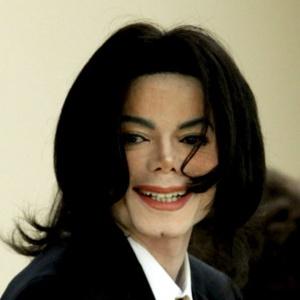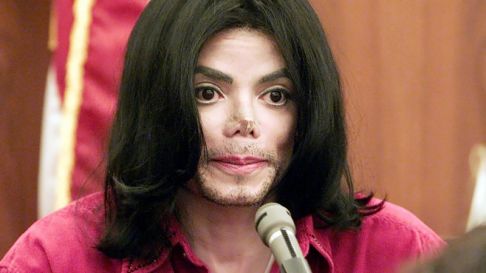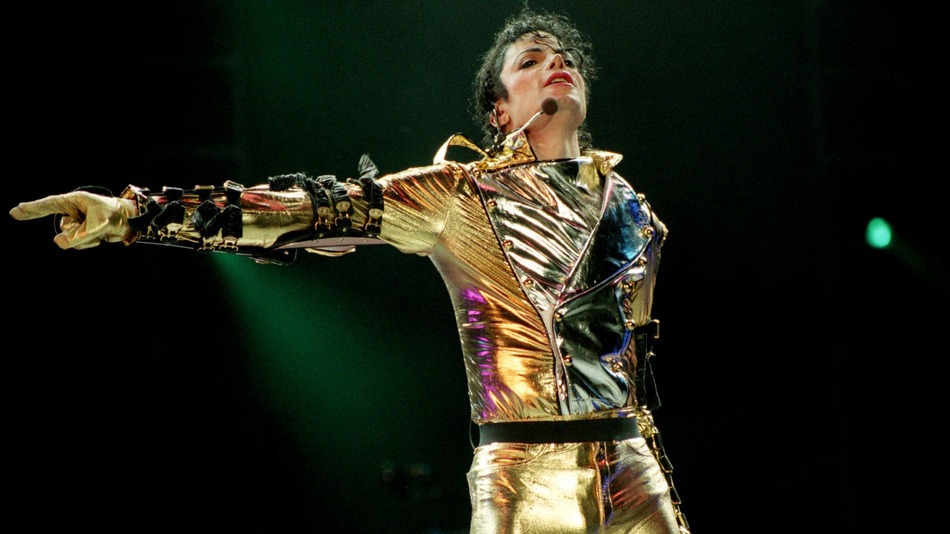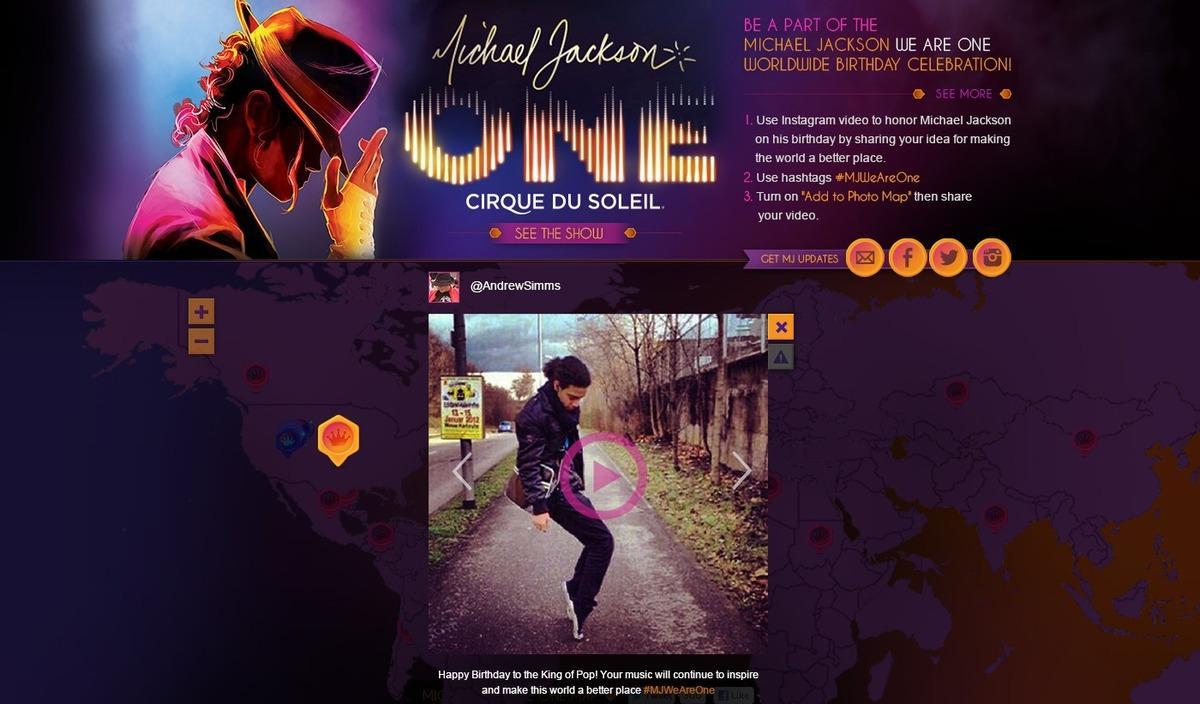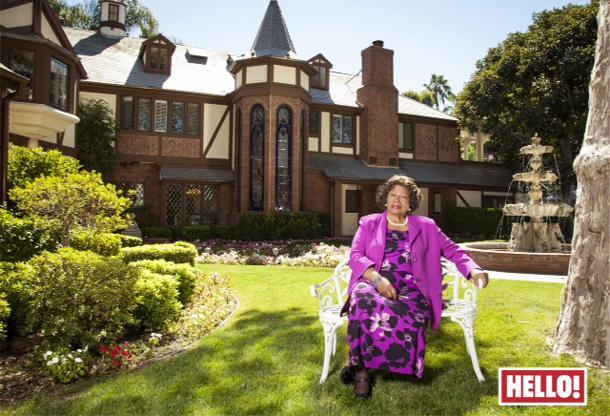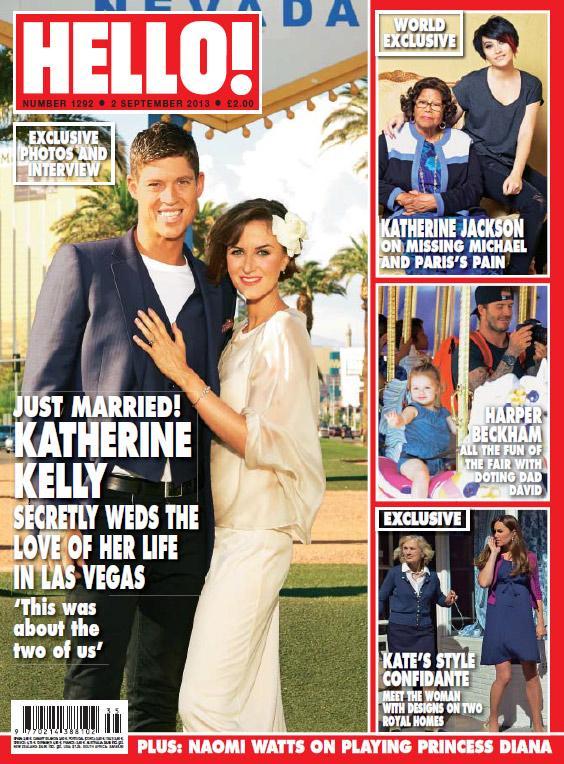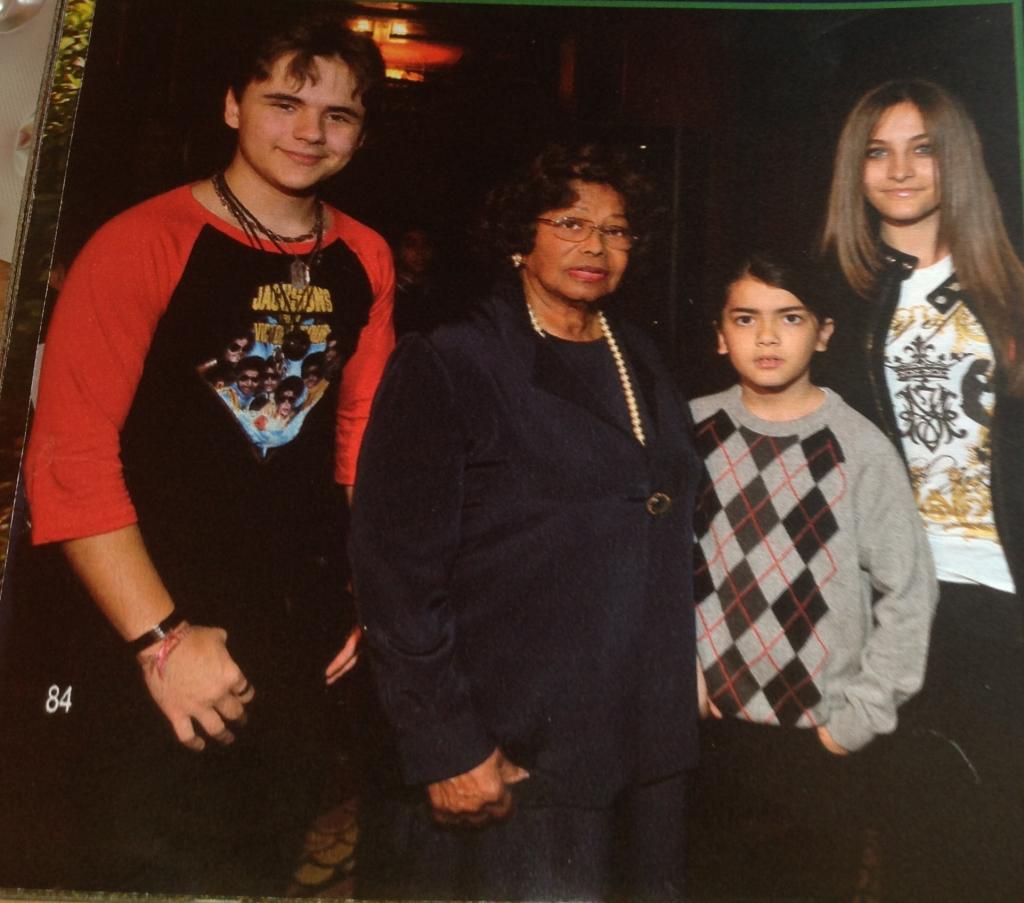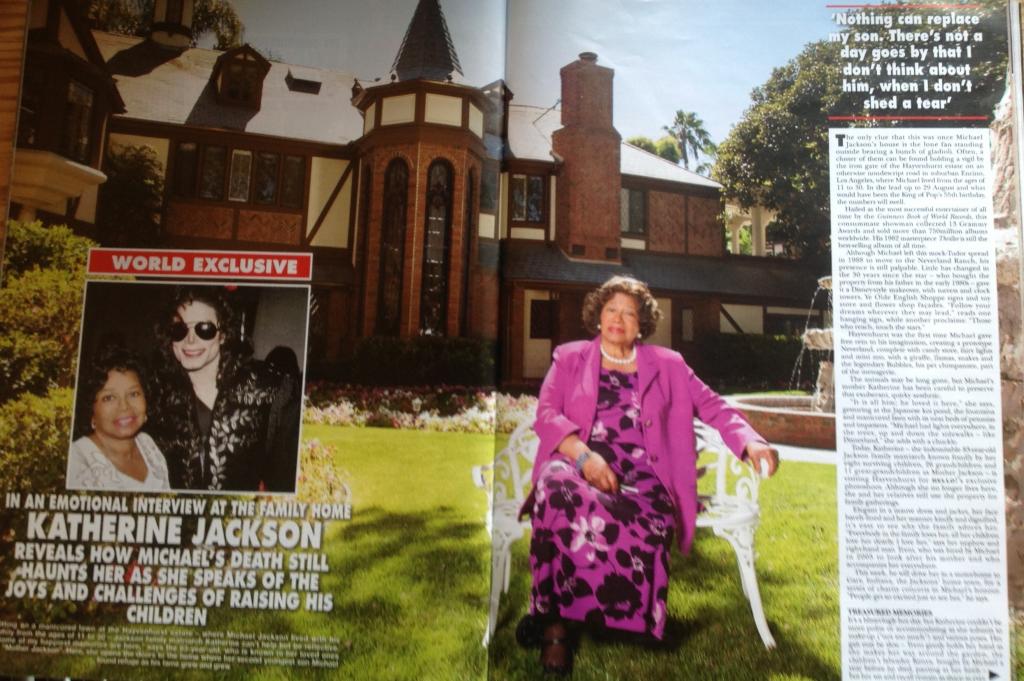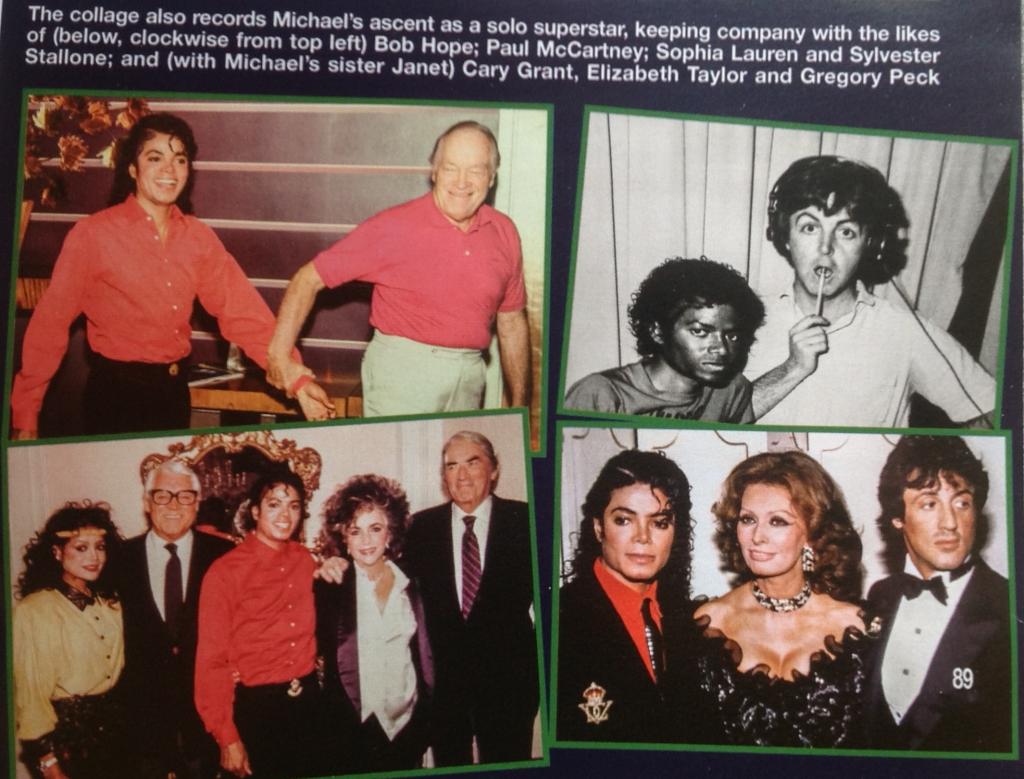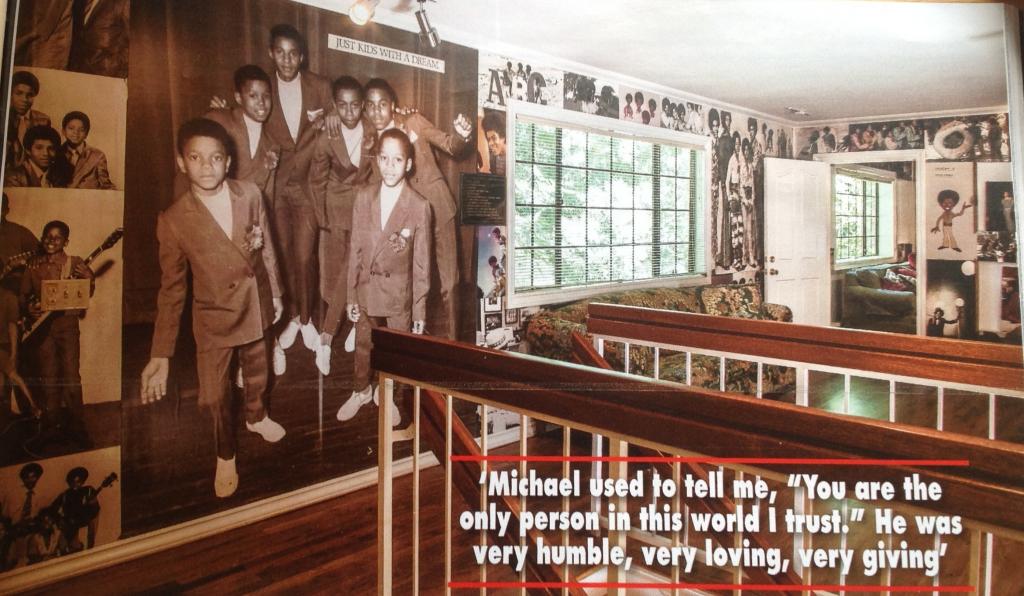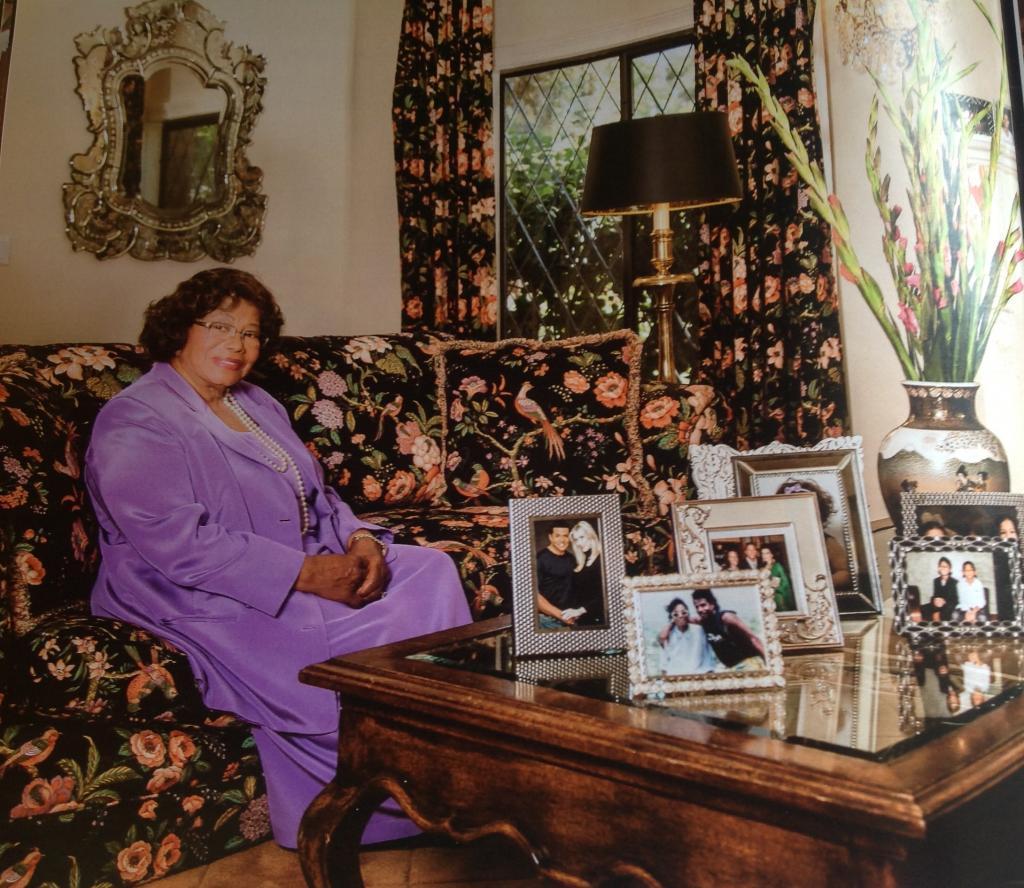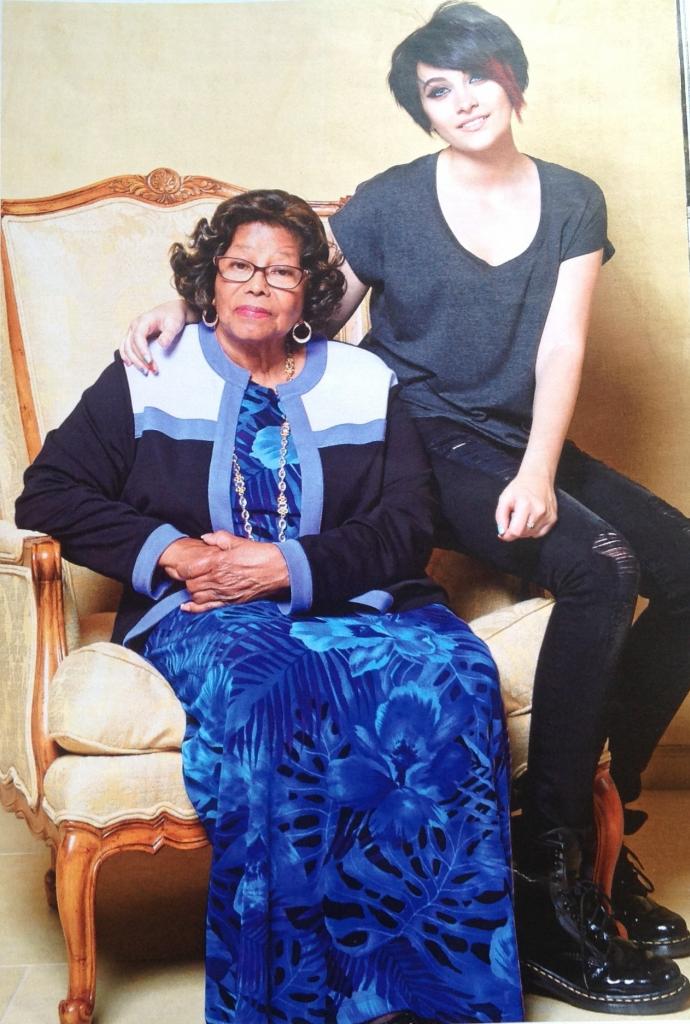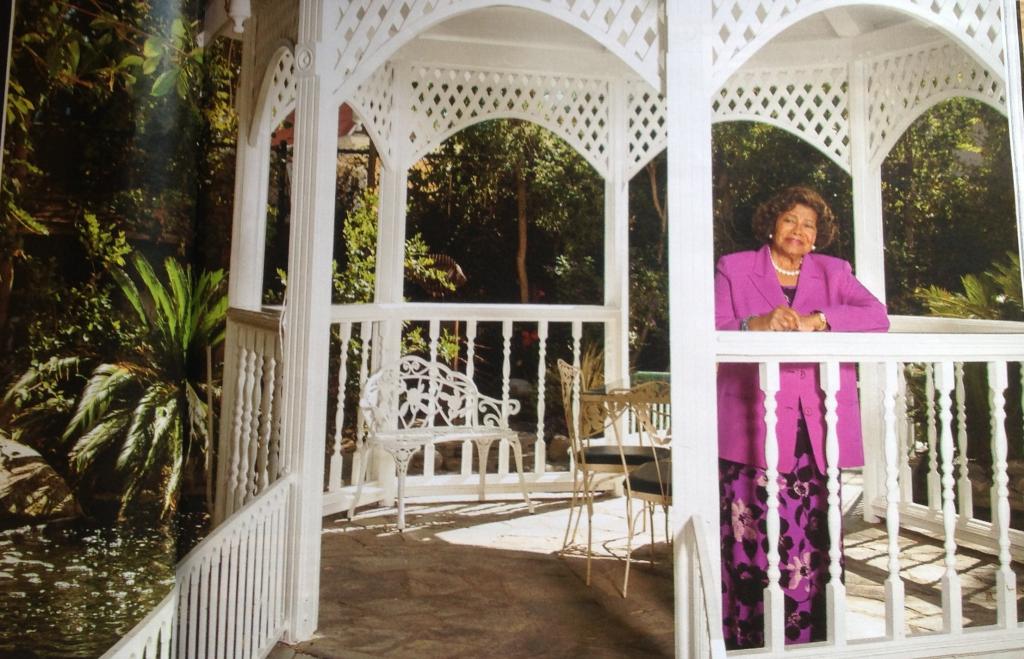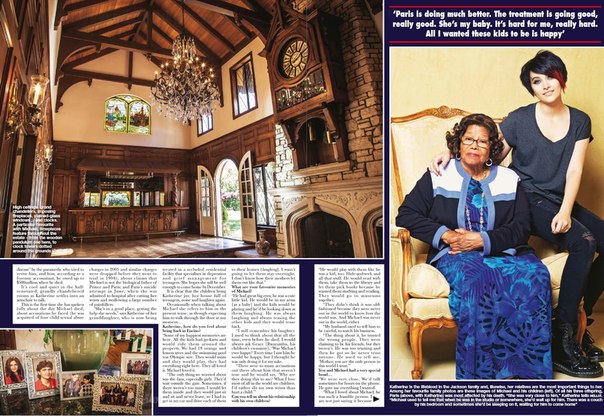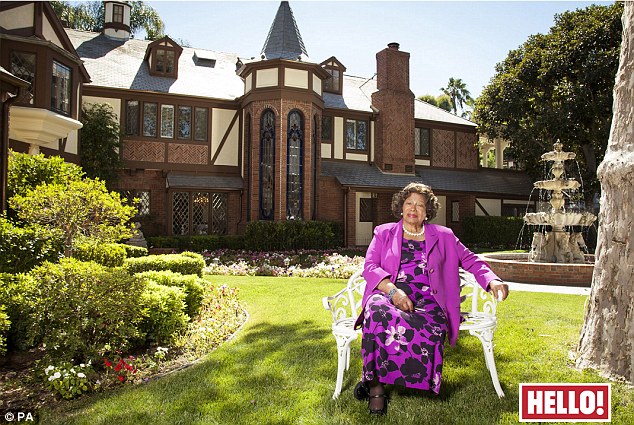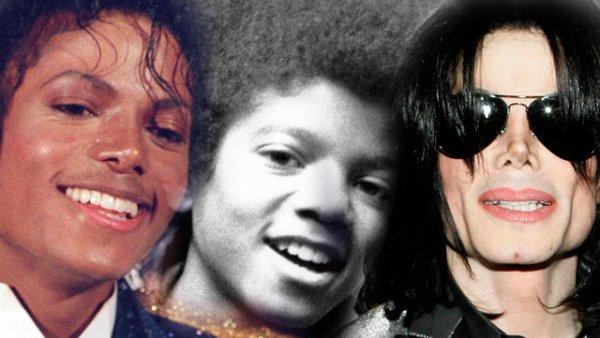FaIrIeFlOwEr
Diskussionsleiter

Profil anzeigen
Private Nachricht
Link kopieren
Lesezeichen setzen

dabei seit 2009
Profil anzeigen
Private Nachricht
Link kopieren
Lesezeichen setzen
MJ~Leben u. Sterben~u das Geschehen danach!
21.08.2013 um 13:20Quelle: MJJC ~ Eintrag #73 ~ User: Ivy
http://www.mjjcommunity.com/forum/threads/129265-Katherine-Jackson-vs-AEG-Live-Daily-Trial-Testimony-Summary/page5
Jacksons vs AEG - Day 70 – August 15 2013 – Summary
Katherine and Trent Jackson is in court.
Debbie Rowe Testimony
Jackson cross
Rowe started out being questioned by Deborah Chang, one of Katherine Jackson’s attorneys. Much of Rowe’s early testimony was explaining the medical conditions Jackson suffered from. Through photos, she explained to the jury what vitiligo, discoid lupus looked like and their effects. (AP)
Jacksons attorney Deborah Chang resumed cross examination. Chang asked if traffic was better today. "It's Palmdale... it was actually worse today," Rowe responded. (ABC7)
Rowe said you couldn't look at it and say it was lupus. Then Chang showed picture of black male with vitiligo. "The thing with vitiligo, the color can come and go and if you go on the sun you can get sunburn," Rowe explained. (ABC7)
Rowe said vitiligo was harder to treat in people with darker skin, and explained that the skin lightening can come and go. She said it became clear that Jackson’s vitiligo wasn’t going to go away at some point, and it caused him tremendous anxiety. Jackson, in consultation with Dr. Klein, opted to de-pigment all of his skin, Rowe said. Vitiligo was one of the reasons that Jackson sought frequent treatment from Dr. Klein, Rowe said. (AP)
"For Michael, it came and went for a good period of the time. It was easy to cover with make-up," Rowe testified. "Everybody said he bleached himself, but he didn't," Rowe said. Rowe: It's easier go lighter color and try to match with make-up. It's hard to match dark skin, they don't make good make-up for dark skin. Rowe said Michael had come to a point it (vitiligo) was going to stay, it wasn't going to get any better. "Each time the pigment disappearead, it got bigger and bigger." She said that cause tremendous anxiety in Michael. Rowe said up until 99 MJ still had issues w/ it. "Vitiligo is seasonal, it'd come and go. Sometimes it'd be better and sometimes it wouldn't. Rowe said Dr. Klein tried different treatments, ultimately tried to de-pigment. "You can't just slap cream around whenever you want, you need to get your skin checked," Rowe said. That's one of the reasons MJ saw Klein. (ABC7)
Chang then asked about the burns to Jackson’s scalp that occurred during the Pepsi commercial shoot. (AP) Michael's burn was very serious, Rowe explained. Rowe: I didn't want him to feel as hopeless as he felt. We may not be able to make it perfect, but let’s see what we can do. "He's very shy, so for him to have all of these going on and being in public it was very hard," Rowe testified. Rowe said MJ cried about it, was embarrassed and felt disfigured. He was worried that people would see disfigurement before he would. Chang asked if there was a comparison to elephant man. She said yes. "He didn't really trust anyone at all," Rowe explained. (ABC7)
Thursday's testimony, however, began with Rowe's description of Jackson's skin problems, which included vitiligo -- a condition in which his pigment disappeared, leaving large white spots on his face, hands and body. "Everyone says he bleached himself, but he didn't," Rowe said. Many of his visits to Dr. Arnold Klein, the Beverly Hills dermatologist where she worked for 18 years as a medical assistant, were to treat the condition, she testified. Jackson compared himself to the "Elephant Man," a 19th-century Englishman who became a circus sideshow curiosity because of severe disfigurements, she said. "He was worried that people would see the disease or the disfigurement before they would see him working sometimes," Rowe testified. He also suffered from discoid lupus, which made his skin tissue "mushy," especially on his scalp, she said. (CNN)
Testifying during a negligence lawsuit filed by Jackson's mother, Debbie Rowe said the singer was treated for scars he sustained when his scalp was burned in a commercial shoot and for the skin-lightening disease vitiligo. Rowe said the injuries as well as the effects of vitiligo left Jackson feeling like he was disfigured. (AP)
Rowe offered perhaps the most detailed public recital of Jackson’s medical ailments, saying he suffered from vitiligo, discoid lupus and keloids from serious burns on his scalp sustained during the 1984 filming of a Pepsi commercial. The conditions, Rowe testified, would be difficult on their own for anyone. For Jackson, she said, it was worse. “He’s very shy. For him to have all this going on and to be in public, it was really really difficult for him,” she said. The singer was embarrassed of his skin conditions, she said, and compared himself to the Elephant Man. Jackson’s vitiligo — where skin loses pigment in patches — “would come and go,” Rowe said, but grew progressively worse. He made a decision to “depigment” his skin because he couldn’t find decent makeup, she said. “Everybody says he bleached himself, which he didn’t,” she said. (LATimes)
Rowe, on her role of accompanying Jackson to procedures: “I didn’t want him to feel as hopeless as he felt and as helpless as he felt.” She said any one of Jackson’s conditions would have been difficult for a person to deal with, but MJ had to deal with it in the public eye. Chang: “He felt disfigured?” Yes, Rowe replied. Chang asked if Jackson felt embarrassed. Rowe said he did feel embarrassed. “He was worried that people would see the disease and the disfigurement before they would see him working,” Rowe said. Rowe was asked whether Jackson compared himself to the Elephant Man. She said he did. (AP)
Rowe said Michael didn't disclose it to his mother. He wanted her to know that he was okay and that she didn't have to worry about him. (ABC7) Rowe was she and Jackson talked about everything, and that he didn’t want to burden his mother with specifics about his conditions. (AP)
Rowe noted she wasn’t a Michael Jackson fan when they met and she told him so. “I apparently have no filter, as my daughter says,” she said. Jackson found her honesty refreshing, Rowe said. She began to accompany him to medical appointments to put him at ease, watch out for him. (AP) Chang: Did you always make him laugh? Rowe: Well, that was our relationship. Rowe said Michael had a really good sense of humor and they tried to find humor in stuff. "And if he was feeling down I'd do something to take his mind off of it," Rowe said. "I apparently have no filter, as my daughter says." Chang: Did he appreciate that on you? Rowe: He did, I think he felt refreshed. Because he couldn't do it, he was happy I could. (ABC7)
“As busy as he was, he wasn’t the best person to think about and organize and keep track of his medical care,” Rowe said. Rowe explained to the jury why Jackson needed two doctors to treat his discoid lupus. She said it needed treatment from a rheumatologist (Dr. Allan Metzger) and a dermatologist, (Dr. Arnold Klein.) Both got extra training in their respective fields. (AP) Rowe: He knew I'd look after him, I wanted him to see the best physician, would find people who would take care of him. Rowe said she told MJ he needed to be organized with his medication, get one of those morning, afternoon, evening pill organizer. (ABC7)
Rowe went with Michael to see other physicians. Dr Metzger is an internist and rheumatologist who treats auto-immune diseases, such as lupus . Chang: So it takes a dermatologist and rheumatologist to treat discoid lupus? Rowe: Yes Rowe said Dr. Metzger was amazing, became MJ's internist. "And he was the best man in our wedding," she said. (ABC7) Chang asked Rowe a few questions about Metzger. She told the jury Metzger was the best man at her and Jackson’s wedding in 1996. (AP)
“He was almost phobic about needles,” Chang asked. “No, he was phobic,” Rowe replied. (AP) Chang: And he was almost phobic to needles? Rowe: Oh, he was phobic. C: And sometimes you'd have to literally hold his hand? R: I always did. Rowe said Michael wanted her present in all procedures. She said he always had problems with scar on burn scalp. Chang: Was Dr. Hoefflin a very prominent plastic surgeon? Rowe: Yes, and very, very good. (ABC7)
Rowe was also complementary of Hoefflin’s skills as a plastic surgeon when he first treated Jackson. She then explained that Jackson had keloids, a series of lumpy bumps on his skin that sometimes happen to burn victims. A couple photos were shown. None of the pictures Chang showed Rowe to demonstrate medical conditions were of Jackson. Rowe said keloids are extremely painful. On Jackson, they started “mid-scalp and went back to the crown,” she said. Keloid tissue is very hard and dense and it requires regular injections to treat. She said an air gun is used for some of the treatments. “It’s horribly painful,” Rowe said. She said in some treatments, you can hear the skin popping while the medication is administered. (AP) Chang: He had painful burn keloids? Rowe: They were keloids, I don't believe there's a different between burn or a cut. A keloid is a keloid. Rowe explained there were areas the scars were linear and elevated, other areas looked like skin had been stretched, other it was very thin. Rowe said Asian skin and Black skin are the worse for trauma. Chang: And do you know keloids can be very painful? Rowe: They are. Rowe said keloid tissue is very dense, hard. To get cortisone in, you don't want it to get around the keloid, you want it to get in the area. Cortisone softens the tissue. "You could hear the skin popping when the medication was going in," Rowe said. "It was horribly painful." (ABC7)
After the treatments on Jackson, there wasn't enough skin for plastic surgeon Steven Hoefflin to do a scalp reduction. That’s why Jackson had to have an implant placed under his scalp to expand the skin. That was done by Dr. Gordon Sasaki. The aim was to get one keloid to contend with on Jackson’s scalp, but it wasn’t successful, Rowe said. It fell apart in 1996 or 1997. In the end, the keloids got “even thicker and lumpier.” Rowe said another surgery wasn't an option. (AP) Rowe: He had such significant scarring, he didn't have enough tissue left, there was no skin to stretch (to do reduction plastic surgery). The burn area couldn't grow hair, baldness also grew. "He hated it," Rowe said. That's when they called Dr. Sasaki, around 1993. Rowe: What they show here is what happened to Michael. They would put saline every 7-10 days and let it stretch it out. Chang: It literally expands, stretches the skin? Rowe: Yes "It was brutally painful," Rowe said. "It required pain medication." (ABC7)
The keloids, she said, were dense, bumpy scars that went from the middle of Jackson’s scalp back to the crown of his head. Klein and other doctors would inject cortisone into the tissue to soften the scars — a procedure Rowe said was “horribly painful.” “You could hear the skin popping when the medication went in,” she said. Ultimately, she said, doctors looked to insert a “tissue expander” to expand what healthy skin was left on the singer’s head. A flap was filled with saline every seven to 10 days to stretch the skin, she said, again describing the treatment as “brutally painful.” (LATimes)
"There are time you cut keloid and you end up w/ bigger keloid," Rowe said. They wanted to have only 1 linear keloid on MJ's head to deal. Around 1997, it felt apart. "Because of the lupus it didn't hold down," Rowe said. He had lumpier, bumpier keloids. Rowe said after cortisone shot, sometimes the keloid would go down, sometime it would get worse. Rowe said after cortisone shot, sometimes the keloid would go down, sometime it would get worse. (ABC7)
Chang: And you saw first hand his fight with pain? Rowe: Yes . Rowe: I wasn't assigned to help him recover, I took care of him when he came to see Dr. Klein. Rowe said, crying, that she went with Michael to other procedures out of love, not because she had to. "Because he was my friend, I wanted to make sure he was ok." (ABC7) Rowe began to break down as Chang asked her to describe her helping Jackson during his medical treatments. She said she wanted to make sure her friend was OK, but it wasn’t part of her job to accompany him to treatments outside of Klein’s office. (AP)
Rowe said she would ask Jackson about his pain on a 1-10 scale, and he would get scared if his pain approached reached level 3. (AP) Rowe developed a pain scale to help measure Michael's pain. She said it was easier to assess the pain that way. Chang: At what number he got scared? Rowe: 3. "I don't know that his pain level went from 3 to 10, I know his fear accelerated because his fear of pain was so bad," Rowe explained. Chang: When he had pain, did he have cold sweats? Rowe: Yes C: Was he pale? R: Yes. Rowe said it was like a blind migraine, he couldn't see, wasn't performing at time, he couldn't do anything. Chang: Do you agree it was debilitating? Rowe: Yes C: And it was real? R: Yes (ABC7) She said she saw him in so much pain, he would have cold sweats, grow pale, and couldn’t see or think clearly when this happened. Chang: “He couldn’t be creative?” “He couldn’t do anything,” Rowe responded. (AP)
Rowe: I didn't want him to unnecessarily take, you don't take vicodin if you can do it with motrin, for example. She said they were doing demerol after surgery, then percocet. Chang: He had legitimate need for pain medication? Rowe: Yes C: You agree MJ wanted to be responsible for pain management? R: Yes. "He didn't want to be loopy," Rowe said. "When he had pain medication, he didn't go out. We stayed in, because he was slurring." Chang: That's not how he wanted to be? Rowe: Correct C: Was he perfectionist? R: Meticulous. Chang: Do you agree he did the best he could? Rowe: Yes . (ABC7)
"His biggest problem was that Dr. Klein and Dr. Hoefflin were trying to overprescribe medication," Rowe opined. Chang: Just to be clear, not at the request of MJ? Rowe: Yes . He did not want pain," Rowe said. She said he had no choice but deal with the doctors. (ABC7)
Jackson was very fearful of pain, she said, noting he was afraid of needles and that she “always” held his hand. The pain would be so intense, she said, he would suffer “blind migraines,” get cold sweats and grow pale. “He couldn’t do anything,” Rowe said. But, Rowe said, she never saw Jackson “doctor shop” in order to get more pain medications. He was very trusting of doctors and “very loyal” to his own, she said. “He said, ‘They take the oath. Do no harm,’” Rowe testified. (LAtimes)
Rowe said Jackson “wanted to be able to focus on his work. She said when he had taken pain medication, they wouldn't go out. Jackson’s struggles with pain medications were well-known on his “Dangerous” tour, Rowe said. Rowe: “It wasn't a secret. I used to hang out with the dancers and the people who worked with him.” Chang asked whether Rowe remembered Paul Gongaware from the “Dangerous” tour. She did not. (AP)
Rowe: After procedure in 93, MJ went on tour and was doing that part of the tour until Forecast, I met him one time I didn't know who he was. "Next time I met Michael in Mexico City and he was a mess," Rowe recalled. Chang: He made an announcement to the world he needed to get help? Rowe: Yes (ABC7)
Chang: Did you ever hear the name Paul Gongaware? Rowe: I don't know why I know the name. (ABC7)
Rowe said they would not allow her to talk to Forecast. Chang asked if she knew Forecast has been hired by the insurance company. Objection. Chang asked if tours caused MJ extreme stress or anxiety. She said yes. (ABC7)
Chang: Did he try to hide any drugs from you? Rowe: Not that I know of (ABC7) Rowe said she felt Jackson was always open and honest with her.Chang: “Did he ever try to hide any drugs from you?” “Not that I know of.” (AP)
Debbie Rowe was also asked about watching Jackson’s shows. She said she would sit on stage so as not to get crushed by the fans. While she wasn’t initially a fan of his music, Rowe said Jackson’s performances were amazing and she wished everyone had seen 1 of his shows (AP) Rowe: When I'd go to a concert and I was fortunate enough to be on stage, I'd see him. "MJ was my friend before anything else," Rowe said. "I'm so freaking lucky." "It was just, it was surreal, because I wasn't a fan, I was his friend first," Rowe explained. Rowe: The show was amazing, the dancers wee amazing, Michael was so physical when he'd do his performance. Rowe: He'd still ask 'how did I do, did I do ok?' Really dude, you didn't hear 55,000 people screaming? I think you did ok. "It was an athletic event to see him perform," Rowe explained. Rowe said on "This Is It" MJ wasn't performing, it was just a run-through of what he would do on the show. (ABC7) She spoke of his concerts, which she described as “amazing,” and watching them from a seat on stage. “I would see him and I would think, is this Michael Jackson? Michael Jackson was my friend before he was anything else,” she said. “I saw him, and I would say, ‘Oh my God, I know him.’ … And I would think, 'I’m so flipping lucky.’” (LATimes)
Chang showed a timeline of Jackson’s accomplishments between 1983 and 2000, when he and Rowe were close friends. Chang had to show the timeline to AEG Live defense attorney Marvin Putnam, who wasn’t shown it before court convened today. There was a little bit of bickering, and Rowe told the attorneys, “But sharing is caring.” Putnam was OK with jurors seeing the timeline. While there were a lot of professional accomplishments, Rowe noted that Jackson became a dad during that time period. (It was on the chart) (AP)
"Most important, he became a dad," Rowe said. "He said they take the oath to do no harm. He was very loyal to his physicians." Rowe: I knew that the only one who had Michael's best interest was Dr. Metzger. He treated him as a patient, human being and a friend. (ABC7)
Rowe said there worse type of medical care is: - very rich: can buy it - very poor: can't afford any - very famous: can dictate it. “ When it came to the pain he wasn't dictating, it was begging for relief," Rowe described. "He trusted what doctors were doing." Rowe said she tried to tell MJ he allowed doctors to control him too much, he should not be submissive. (ABC7)
Rowe reiterated that Jackson trusted and respected his doctor. “He was very loyal to his physicians,” she said. “He always thought doctors would have his best interests at heart,” Rowe said. That was true of Metzger, she said. She was also asked whether Jackson tried to dictate his care. Rowe said MJ wouldn’t question his doctor’s decisions. Rowe: “When it came to the pain, I wouldn’t say it was dictating, it was more begging for relief than anything.” (AP)
“The very rich, very poor and the very famous get the worst medical care,” she said Thursday. “The very rich can buy it, the very poor can’t get any and the very famous can dictate it.” (LATimes)
Rowe, clutching a tissue and breaking down at times, described Jackson as being in debilitating pain throughout the nearly 20 years that she knew him. She said her husband trusted his doctors and depended on them to give him proper medications. Jackson wouldn't specifically demand certain medications but had an intense fear of pain caused by procedures to try to repair his scalp, she said. "When it came to the pain ... it was more begging for relief than anything," Rowe said. "He respected doctors so he wouldn't question what they were doing." (AP)
When asked if she thought Jackson dictated his medical care to his own doctors, Rowe said, “When it came to pain, I wouldn’t say it was dictating. I would say it was more begging for relief.” “He respected doctors and wouldn’t question what they were doing,” she said. (LATimes)
Chang: Was he treated like a cash cow? Rowe: Yes Chang: Was he engaged in doctor shopping? Rowe: No. Rowe: There may have been, I don't know. I had not really heard about doctor shopping, specially at the degree we have today, back then. (ABC7)
Chang said in 2000 MJ was seeing a lot of doctors. Rowe said he had his doctors in LA. Rowe said she always instructed the nannies to have doctors on standby when they travelled and to keep notes of their treatment. (ABC7)
It was around this point that Rowe was asked if she thought Jackson was doctor shopping. She said no. Rowe said doctor shopping wasn’t a term she was familiar with back when she was close to Jackson. Chang asked if she agreed that Jackson never sought out doctors solely to get drugs. “To my knowledge, no," she responded. Rowe was pretty annoyed with some of Chang’s questions, which she said were too general. (AP)
Chang: Did he have to search for doctors to give him drugs? Rowe: No . Chang: In your opinion, when he saw doctors is because he needed it? Rowe: That's very general... Rowe: Not every appointment was 'I have to see a doctor.' It was 'I'm going to have a performance, I need to have collagen.' Chang: Would you agree that MJ never sought after doctors just to get medication? Rowe: Not that I know of. Rowe said she is nosy, so she checked all the medications the doctors gave him. (ABC7)
Attorneys talked over each other objecting. "I feel their pain," Rowe said pointing to the jurors. (ABC7)
Regarding Hoefflin putting MJ down and not treating him, Rowe said: "I didn't think I saw it, I saw it! I was there, I saw it!" Rowe said that when she worked with Dr. Klein, MJ's vitiligo got progressively worse. (ABC7)
Chang then moved into questions about Rowe’s relationship with Jackson. She said they’d watch movies together, in person and on the phone. Rowe hadn’t seen “To Kill a Mockingbird,” so Jackson called her one time when it was on TV. They didn’t know what a word meant, so Rowe said Jackson called up Gregory Peck to answer questions about the film. “Michael was tickled,” she said. (AP)
Rowe said she would watch movies with MJ all the time. Some times they went to the movie theater, even though MJ had a theater at Neverland. Rowe said MJ would call her and say "To Kill a Mockingbird" is on. "He was great friends with Gregory Peck," she explained. They didn't know what schiferella was, so MJ told her lets call Gregory Peck. Peck explained a bunch of things of the movie to them. Rowe said when MJ was very contemplative, they went to Forest Lawn (cemetery) over Griffith Park. "Michael loves sculpture," she explained. "I never realized that's a place he could go and it was quiet, and just be himself. It was nice, it was nice," Rowe recalled. She said there wasn't a bunch of people, he could go and hang out. (ABC7) The jury seemed to hang on every word of Rowe's testimony, which included the singer's medical conditions, and the time they were watching "To Kill a Mockingbird" and called Gregory Peck with a question about the movie he had starred in.(LAtimes)
There were very few places where Jackson could go in public and not be mobbed or noticed, she said. One place where he took Rowe was Forest Lawn Hollywood Hills, where they looked at the sculptures and artwork in peace. Jackson’s body was kept for several weeks at the cemetery after his death, and he’s interred at another Forest Lawn cemetery. Rowe said one way she and Jackson would sneak around was she would pick him up in her Toyota Celica. They went to Tower Records one day. No one noticed them, Rowe said, until Jackson spoke up and asked about a particular artist. Then everyone recognized Jackson’s voice. Rowe said they had to hide out in the store’s bathroom until Jackson’s security detail arrived.She said she got in trouble for the trip. (AP)
Rowe said that when he was feeling depressed, she took him out. There were a lot of impersonators in the 80-90s. Rowe: I drive a Celica, really, MJ in a Celica? She said at one time they went to tower records without security. She said there were only a few people in there, MJ was looking at CDs. Rowe: Then I hear from across the room 'Debbie, do you know this? Then everyone knew who he was, the store was packed in 20 minutes. Rowe locked herself in bathroom at Tower Records with MJ and called his security to pick them up. "I got in so much trouble," she recalled. (ABC7)
Rowe: He said you should incorporate horses with your love of animals. He paid for me to go back to school. "He helped whoever he could" Rowe said. (ABC7)
Rowe: In concerts, those girls will kill you to get near the stage -- fans laughed in overflow room. Rowe said security would give watches and rings. MJ would pick a girl to dance with him. "I thought that was so sweet."Chang showed video of woman on stage hugging Michael during "You're Not Alone" song. Rowe cried watching it. (ABC7) Chang played a clip of Jackson performing “You Are Not Alone” in Germany. A woman came on stage, clung to Jackson and refused to let go. The jury was in stitches laughing at the woman clinging to Jackson. She gave a leg kick when security took her off stage. Chang also played the music video for “Remember the Time.” Rowe pointed out one of Jackson’s camels from Neverland was in the video. (AP)
Rowe asked if Jackson was easily manipulated. “He could be,” Rowe replied. Chang asked if it happened when he was scared; Rowe said yes. Rowe told the jury that Jackson had so much adrenaline after shows that he couldn’t sleep afterward. (AP)
Chang asked some questions about Jackson received propofol to help him sleep in Munich, Germany on the “HIStory” tour. Rowe was asked more questions about the propofol treatment in Germany. She said she was worried it would affect him. She said Jackson was clean, and she was concerned that getting the anesthesia would trigger some sort of relapse. In response to questions from Chang, Rowe said the German doctors brought their equipment in through the hotel’s front door. Chang was trying to make the point that Jackson’s propofol treatment in that instance wasn’t totally hidden. (AP)
"He had difficulty to sleep anywhere, it wasn't just a tour problem," Rowe said. Rowe: "I'd see him go 4 days without sleep because he was thinking of a song or a project he wanted to do." Chang: Fournier never gave MJ anesthesia for just sleep, right? Rowe: Correct . Around 1997, near the end of tour, he uses Propofol to sleep in Munich. Chang: MJ never sought out anesthesiologist just for the purpose to sleep prior to that, correct? Rowe: Yes. Rowe: After HIStory he couldn't sleep, he talked to me and I said he had to talk to Metzger. Chang asked about the conversation Rowe and MJ had with Dr. Metzger about him not sleeping while in Germany. There were 2 anesthesiologists that came over, Rowe said. They brought in heart monitor and equipment to the hotel, didn't hide anything. Chang: Based on your observations, he never asked for medication to sleep? Rowe: Not that I knew of. Rowe: I discussed with, I can assume that Dr. Metzger had a discussion with these doctors about what they were going to do. Chang: Outside the US, do they use Propofol to treat insomnia? Rowe corrected: It was Diprivan. Rowe: Metzger had conversation w/ MJ. Apparently it was decided these doctors were going to give him anesthesia to put him to sleep 8 hrs. Rowe said she spoke with the doctors to make sure she knew what they were doing. The doctors spoke English. Rowe: I spoke to Metzger to make sure it was the same medication. "I knew they were anesthesiologists, they had practice in Munich. I don't know if they had gone to hotels to do this," Rowe said. In 1996, the law prohibited the use of any anesthesia outside a surgical center. Chang: You would not allow any illegal procedure in the hotel room, correct? Rowe: Yes. Not knowing. Rowe said the doctors had physicians desk reference book with them. They told Michael there was risk, including death. Rowe: My fear in addition to harm, it was because he was clean, this was after he went to rehab. "I didn't want anything they were giving him to affect his addiction to demerol," Rowe testified. Rowe said doctors were very detailed kept medical records. If she didn't feel comfortable, she wouldn't have allowed treatment to take place. This was 5 months after Prince was born, Rowe recalled. "They told me that anything more than 4 hours they had 2 physicians." It took some planing to put the equipment together, Rowe said. Chang: Did he ever say bring the equipment in the dark in the middle of the night through an alley? Rowe: He came through the front door. Chang: And secutity brought them up? Rowe: I don't believe anyone ever come up without security. The doctors were there on 2 occasions, with all the same equipment. Sometimes Michael would get IV for dehydration after shows, Rowe said. Chang: He used IVs for fluids, vitamins while on tour, right? Rowe: Yes. Chang: Based on your observations on that tour, Mr. Jackson wasn't asking medication to get high? Rowe: No. "He didn't like being high," Rowe testified. Chang: During the 20 years you were friends not habit of diprivan or any anesthesia to sleep? Rowe: Not that I know. (ABC7)
Rowe was then asked about her children with Jackson. She said he was devastated after his divorce from Lisa Marie Presley. She said she asked Jackson why, and he mentioned that he didn’t have children. Rowe said she told her friend that he could still be a father. Rowe said she told Jackson, “Let me have a baby with you. You can have the joy of being a parent.” Jackson thought about it for a couple of weeks before agreeing to have a child with her. (AP) Chang: Did you have discussions he wanted to be a father? Rowe: He loved kids, he did. Rowe: He was devastated after the divorce, I was trying to help. What does make you the happiest? 'I want to be a father' he said. Rowe said she told him he could still be a father. They talked about it and then... it happened. (ABC7) On another matter, Rowe said Jackson was devastated by his divorce from Lisa Marie Presley and because he didn't have any children. Rowe said she told him they should have a baby together. By that time, she and Jackson had been friends for more than a decade, with Rowe holding the singer's hand as he received injections for numerous medical procedures and talking with him several times a week. "I wanted him to be a father," she said. "I wanted him to have everything he didn't have growing up. I wanted him to experience it with his own child, with his own children." (AP)
Chang then showed a photo of Jackson, in makeup for his short film “Ghost,” riding on the back of her Harley-Davidson motorcycle. Rowe said she told Jackson and he was so excited, he ran onto the tarmac of the airport where they were filming “Ghost.” (AP) Chang showed Rowe and MJ in a Harley motorcycle, he was with make-up on. He always had crews with him to document stuff, Rowe said. She took him for a ride and took him to a tarmac and said I need to talk to you. "I said you're going to be a dad," Rowe said, sobbing. "He was so excited, he ran out in the tarmac screaming." Chang asked if he bought all the books around. Rowe said he was a big reader anyway. "He wanted to be the best dad he could be" she recalled. Rowe said she asked Michael to make two cassettes for Prince, she wanted the baby to hear his voice. "I had a headset over my stomach so baby could hear him, so the baby knows who you are," Rowe described. "They knew his voice." Chang showed pictures of Dr. Metzger and Rowe/MJ in Sydney during wedding, MJ, Debbie and kids. "He was amazing," Rowe said about MJ as a father. Rowe told Michael Paris was going to have him around her little finger. Rowe: Before anybody knew I was pregnant with this baby, he was shopping for clothes, would donate some times. "I was pregnant, he was picking clothes for his own children," Rowe said. Chang: Did you make a decision to leave the children with Michael? Rowe: Yes C: Ever regretted it? R: No. Rowe: Michael wanted to be a father. I didn’t sign on to be a mom. I loved him very much, and I still do. Rowe: I wanted him to be a father, to have everything he didn't have growing up, to experience it with this own children. Chang: To have a full childhood? Rowe: Yes Chang: Did you think MJ would be a good father? Rowe: I never questioned that he wouldn't be. Chang: Do you still love them? Rowe: I'm so proud of them. (ABC7)
She said the "Thriller" singer was "devastated" when Lisa Marie Presley filed for divorce in 1996, and she wanted to ease his pain. Rowe said she asked him what made him "saddest," and he said it was the fact they never had kids. "I said, 'Let me have a baby with you,'" Rowe told the Los Angeles jury. "It took him a couple weeks going back and forth, thinking about it, and we talked about it." Rowe never elaborated on how they pursued conception, but she described in intimate detail the afternoon she rode her Harley Davidson motorcycle across the San Fernando Valley to meet Michael on the Van Nuys Airport set of his 1996 short film "Ghosts" and break the baby news. Michael was getting ready to do a shoot, she recalled, but she convinced him to hop on the back of her Harley so they could find a private spot to talk."I said, 'You're going to be a dad!' I was pregnant," Rowe recalled. "He was so excited, he ran around the tarmac screaming."She said Michael recorded cassette tapes that she would play on headphones over her pregnant belly so the baby would know his voice. (NYDailyNews)
Rowe said Michael was equally over the moon when he learned that Paris was on the way. "I told him, 'You're going to be so whipped,'" Rowe testified. "Before anyone knew I was pregnant with this baby, he was shopping for clothes." Rowe said she had no regrets about "leaving" the kids with Michael when their 3-year marriage ended in divorce in 1999. "Michael wanted to be a father. I didn't sign on to be a mom. I loved him very much and I still do," she said, breaking down in tears. "I wanted him to be a father, I wanted him to have everything that he didn't have growing up, wanted him to experience it with his own child, his own children."She agreed with Katherine's lawyer that she "never" would have left the kids with Michael if she thought he was "a drug addict." (NYDailyNews)
Chang showed several pictures of Jackson’s oldest children when they were babies, some with the four of them together. Rowe said when she told Jackson he was going to have a daughter, she told him he was going to be in big trouble. Rowe: “I told him, ‘You’re going to be so whipped. She’s just going to have you around her finger.’” Rowe’s was asked about her decision to leave the children with MJ when they separated and divorced. She said she didn't regret that choice. “I loved him very much and I still do,” Rowe said. “I wanted him to be a father. I wanted him to have everything he didn’t have growing up.” Rowe said she was very proud of Jackson’s three children, including Blanket. She said she wouldn’t have left them if Jackson was an addict. (AP)
Chang asked how MJ looked in the This Is It movie. "He looked horrible," she responded. Rowe learned about MJ's death on the radio, she was driving home. (ABC7) Chang asked whether Rowe saw the “This Is It” film, and how she thought Jackson looked. “He looked horrible,” she said. (AP)
Rowe was then asked about her relationship with Prince and Paris. She said she was closer to Paris than Prince. (AP)
Rowe said she saw Prince at least once after MJ died. "We don't hate each other," she said. But she's closer to Paris. Rowe said at the end of March, April started seeing Paris, talked on the phone every day. "She stayed weekends with me," Rowe testified. (ABC7)
Asked about her relationship with 16-year-old Prince, who attends a private high school in the San Fernando Valley, she shrugged. "We don't hate each other, if that's what you mean," she said. "I'm closer to my daughter." Rowe said she and Paris, 15, began seeing each other at the end of March. She said they talked on the phone and texted frequently and that Paris stayed with her on weekends. Rowe, who raises quarter horses in Palmdale, sobbed as she explained how Jackson’s death has affected Paris, referring to a June 5 suicide attempt that sent her to the hospital. “I almost lost my daughter,” Rowe said. “She is devastated. She tried to kill herself.… She doesn’t feel like she has a life anymore.” (LATimes)
Rowe said before Paris’ hospitalization, she and Paris were communicating daily and she was spending weekends at Rowe’s ranch. Chang asked how Paris had been affected by their father’s death. Rowe broke down and stayed silent for several moments. “Their father is dead,” she said in a raspy voice, and then started to mention Jackson’s schedule. AEG Live’s attorney objected. Rowe covered her face with her hands and he objection was sustained. She told the jury, “I almost lost my daughter.” Chang asked if Rowe had spoken to Paris about her father’s death. “She is devastated,” Rowe said. “She tried to kill herself.” “She is devastated. She has no life. She doesn’t feel she has a life anymore," Rowe said of her daughter, Paris Jackson. Chang concluded her examination. Rowe was incredibly upset by this point. The court took a short break before resuming. (AP)
Their father is dead," an emotional Rowe said. "When I saw the tour come out, the schedule..." "I almost lost my daughter," Rowe said, sobbing on the stand. "She is devastated, she tried to kill herself, she is devastated. She has no life, she doesn't' feel like she has a life anymore," Rowe said "My children were never a sacrifice," Rowe said. Rowe left the courtroom sobbing. Judge broke session for a couple of minutes. (ABC7) When a lawyer for Katherine Jackson suggested that Michael's death wasn't something Rowe contemplated when she made the "sacrifice" of giving him full custody of their kids, the former dermatologist's assistant snapped back."My children were never a sacrifice," she said, breaking down to the point that she needed time to compose herself outside the courtroom (NYDailyNews)
The mother of Michael Jackson's two oldest children broke down in tears when she was asked to describe the impact of the singer's death on his daughter Paris. "Their father is dead," Debbie Rowe responded. "I almost lost my daughter! She is devastated. She tried to kill herself. She is devastated. She has no life. She doesn't feel she has a life anymore." (CNN) Rowe broke down when describing her recent relationship with her daughter Paris. She said she had been in daily touch with the teen until she had to be hospitalized on June 5, when paramedics were summoned to the Jackson family home in Calabasas. Rowe was asked how Jackson's death had affected his only daughter. "She is devastated," Rowe said. "She tried to kill herself. She is devastated. She has no life. She doesn't feel she has a life anymore." (AP) Michael Jackson's ex-wife wailed in anguish on the witness stand Thursday as she described the "devastation" that nearly claimed her only daughter with the King of Pop. "Their father is dead…I almost lost my daughter," Rowe said through loud sobs when asked about the fallout from Jackson's fatal overdose in June 2009."She is devastated, she tried to kill herself," Rowe moaned, describing 15-year-old Paris. "She doesn't feel she has a life anymore." (NYdailyNews)
AEG redirect
AEG Live attorney Marvin Putnam took over questioning. He was relatively brief. (AP)
In re-direct, Rowe said Dr. Klein treated MJ for acne, lupus, scaring and vitiligo. Rowe said she wasn't present when Michael had Botox because when she worked at Dr. Klein it had not been FDA approved yet. Putnam: Did he use Diprivan for collagen procedure? Rowe: Yes. Rowe said it was just demerol when collagen was injected around the mouth area. "But when injection was under the eye, it was painful, that's when we started the anesthesia," Rowe explained. (ABC7)
He asked Rowe about her concerns that Jackson was coming into Klein’s office for more than just collagen treatments. “I didn’t understand why he would come in twice in one week,” Rowe said. Putnam: “You were concerned he might be coming in for the drugs?” Yes, Rowe replied. (AP) Rowe said she asked Michael Jackson are you here because you really need collagen, or why are you here. "I didn't understand why he would come twice for collagen when he just had it done," Rowe questioned. This was early 90s. She was concerned MJ was coming in for the drugs. Putnam: You grew concerned about diprivan intake, approached Klein? Rowe: That was demerol, I called Dr. Metzger, I was concerned about demerol. Dr. Metzger said up disteril, lower demerol. Putnam: Did you asked Dr. Klein Michael was addicted to diprivan because of frequency he was using it? Rowe: Yes. Late 80s, early 90s. (ABC7)
Michael Jackson's ex-wife acknowledged Thursday that she was concerned that some of his frequent medical visits were motivated more by a desire for drugs than by the treatments he received. Debbie Rowe testified during the trial of a lawsuit that she told Jackson about her concerns when he would go to his longtime dermatologist more than once a week in the 1980s and early 1990s."I didn't understand why he would come in twice in one week," Rowe said, adding that she was concerned he might be in search of drugs rather than treatments for blemishes with collagen injections. "I didn't necessarily see what he wanted to have done."Rowe has offered a conflicting portrait of Jackson's medical treatments during her testimony, saying earlier that she never saw him engage in doctor shopping or request specific pain medications. She said many of the visits were legitimately tied to treatments for the skin-lightening condition vitiligo and scars he sustained after being burned during a Pepsi commercial shoot. (AP)
Rowe said Michael called her while he was in rehab in England. She said she told him she was working, since normal people worked. She told him he had to stop everything. He said he was working on it. Putnam: Including Diprivan? Rowe: Yes, everything P: In 1993? R: Yes (ABC7)
HIStory tour was 96-97, Munich. Putnam: Metzger had Jackson's interest in mind? Rowe: Yes. Rowe said Dr. Metzger directed her to bring a bag of medication to the Peninsula Hotel for Dr. Forecast. Dr. Klein went to HIStory tour to do collagen touch ups, acne treatment. He gave MJ demerol. (ABC7)
Putnam also asked whether Rowe was concerned that Jackson might be addicted to propofol. She said she asked about it, but was told that it wasn’t possible to become addicted to propofol. She did say she told Jackson to stop taking all drugs when he was in rehab. (AP) "I was told you can't become addicted to diprivan," Rowe testified. She said it was an anesthesia. Before you go to sleep, there's a bit of loss of control, she explained. "I was worried that sensation might trigger an addiction." "He was a bit of a control freak, he didn't like to be high," Rowe said. Rowe: I was just worried that part of the anesthesia would kick in. I was told you can't become addiction to it. Rowe: Dr. Metzger wanted to try Xanax and Michael said that hadn't work. I said you need to talk to each other and let me know what to do. (ABC7) Putnam asked about Metzger’s role in arranging the propofol treatment in Germany. She said the doctors came after she & Jackson talked to the Metzger. The German docs brought lots of monitoring equipment. Metzger initially suggested Jackson take a Xanax pill, but Jackson said he had tried that and it hadn’t worked. (AP)
Putnam asked about the video of Jackson performing in Munich and whether that was before or after the propofol treatment. Rowe didn’t know when the video was shot and said she couldn’t tell if it was before or after the treatments. (AP) "The shows were all the same, just the girls were different," Rowe said. And joked: "Uah, that sounds so cheap!" Everyone laughed. (ABC7)
After the divorce, Rowe never talked to the doctors about Michael's treatment anymore. Putnam: After 2000, whatever happened to Mr. Jackson you don't have first knowledge? Rowe: Correct (ABC7) Lastly, Putnam asked whether Rowe had any firsthand knowledge of Jackson’s care after the couple was divorced. She said no. (AP)
Jackson recross
In re-cross, Chang questioned: When you asked Dr. Klein if anyone could be addicted to diprivan, he said no, correct? Rowe: Yes. Chang: Was the bag of medication to wean MJ off demerol before 1993 rehab? Rowe: Yes Chang: Did he do everything he could to be the best? Rowe: He did (ABC7)
Chang asked one last final question, about whether Jackson did the best he could with his medications. Yes, she said, very faintly. (AP)
Rowe was excused.
David Slavit Video Deposition
(source : ABC7)
Dr. David Hal Slavit is a board certified otolaryngology. He's licensed to practice medicine in New York and New Jersey. He's never been suspended. Dr. Slavit performed physical exams in hundreds of patients. He has performed physical for purposes of insurance, he said. He explained the difference of physicals: problem-focus, more complete and comprehensive.
Dr. Slavit has performed physical for performance cancellation insurance. He said he checks vital signs, ear, nose, throat, neck, eyes, examination heart, lungs, abdomen and peripheral pulses. Q: Who typically contact you for performance cancellation insurance? Dr. Slavit said it's usually insurance broker or artist management. He said he's done approximately 30 physicals for performance cancellation insurance, mostly for singers, but not all. The majority of times, check comes from the insurance broker. He's done physicals in hotels, rehearsal studios, artist's home, office Dr. Slavit said he's done approximately 20 times for Robertson Taylor, insurance broker.
On Feb 4, 2009, Dr. Slavit conducted a physical on Michael Jackson in connection with a performance cancellation insurance. Bob Taylor contacted Dr Slavit somewhere in the months prior to the physical. "He basically asked if I would agree to do the physical on MJ" . "It was my understanding he was going to perform," Dr. Slavit said. "Yes, I requested to review the prior 5 years of medical records," Dr. Slavit said. He wanted to be as accurate as possible. "I'd say it's not typical," Dr. Slavit testified about getting 5 years prior of medical history, but he had done before other than MJ. Dr. Slavit said this is done if there were prior questions of medical health. "There were questions that had been raised by the broker," Dr. Slavit said. He doesn't know specifically what was asked. Dr. Slavit said insurance broker questioned MJ's breathing capacity, his pulmonary status and overall health. Q: Nothing about prior drug abuse? Dr. Slavit: Not that I recall. The doctor did not ask anything else other than 5 years medical history. He said he was not limited in MJ's examination at any time. Dr. Slavit never received any MJ's medical history, other than what the artist told him during examination.
The physical was done at MJ's house in Los Angeles, the doctor said. Attorney showed documents doc prepared during and after the physical. Patient's name on blood work request: Mark Jones. It's an alias, Dr. Slavit said, just to protect Michael Jackson's privacy. Q: Did you find MJ to be in great physical condition? A: Based on the information I had, yes. Note on form says "today's found Mr. Jackson to be in excellent condition." It also says MJ had allergy and a bit of cold. He was on short course of antibiotics, Dr. Slavit said, he's not on any other medication.
Q: Did he tell you he was taking painkillers? A: He told me he was not taking any painkillers. "He stated he was not taking any medications other than antibiotics," Dr. Slavit testified. Dr. Slavit didn't see anything that suggested MJ was not telling the truth. He didn't find any typical signs of narcotic intoxication.
"Dr. Conrad Murray follows Mr. Jackson on a regular basis," the form said. Dr. Slavit explained Murray was identified by Mr. Jackson as his personal physician and reported seeing him as needed. Dr. Slavit: He reported seeing him a couple of months prior to the physical just for check-up.. "It was a routine check-up," Dr. Salvit said. MJ didn't discuss the details of the visit. Other than Dr. Kantor no one else was mentioned as providing care, Dr Slavit said. Q: Did he tell you MJ said he liked Dr. Murray? A: Yes Q: Did he say he was a good doctor? A: I don't know if used that word. "That he was caring for him, that he was satisfied with the care he was getting, that's basically what he said," Dr. Slavit said.
Dr. Slavit's form said MJ's vital signs were normal. Heart sound was normal, no murmurs. Dr. Slavit: I assessed his pulmonary status with stethoscope, no further pulmonary test done. Q: Did you have difficulty drawing blood? A: I had a little difficulty drawing blood. He used MJ's left arm, and took the specimen himself to the laboratory. Blood work result was normal consistent with MJ being in good health.
Form notes MJ was mature, open and candid with Dr. Slavit. Q: Was he capable of making decisions? A: Yes. Q: Capable of control of his health? A: Yes Q: Why candid? A: That's the perception I got. Q: Was he lucid? A: Yes Q: Speech slurred? A: No Q: Tired? A: No. Q: Did he say he had trouble sleeping? A: He didn't say he had trouble sleeping, he didn't say he had insomnia.. Dr. Slavit: He denied any prior medical problem except for the cold.
Dr. Slavit wrote MJ was in good health, good diet and exercise. He interacted with his doctor for routine check ups. MJ visited his laryngologist for minor issues, seemed proactive and attune to his health. There was an acknowledgment of the need for rest or avoidance of exhaustion. Q: Did MJ ask you to prescribe any medication? A: No
Michael Jackson signed the forms. Dr. Slavit said he saw MJ sign it. At the time of the examination the form was filled out with Michael Jackson. We reviewed the form before he signed it. There are questions on the form that were filled out during the physical. Dr. Slavit said MJ was the only source of the responses. Q: Was there any significant change of weight? A: No The question regarding excessive use of drugs or alcohol was circled 'no'. MJ told Dr. Slavit he was last examined a couple of months prior for routine. Dr. Murray was identified as personal physician. When asked if he felt in good physical condition, Dr. Slavit said MJ responded yes. "That was his answer." Temperature was 98 degrees. Weight: 127 lbs - MJ told him that's what he weighed. Q: Based on your examination, it appeared accurate? A: Yes . Height was self reported also. He told Dr. Slavit he was 5 foot 9. Dr. Slavit received full payment for the physical on Michael Jackson. Q: Did you notice any track mark on MJ when you examined him? A: There were none Q: Did you look his arms? A: Yes Q: His legs? A: Yes. "In the course of reviewing his past medical history there were no surgeries reported," Dr. Slavit said.
Dr. Slavit gave copy of the record to the Coroner pursuant to legal subpoena. Feb 2009 was the only time Dr. Slavit talked to MJ.
Dr. Slavit charges: $6,000 for service $3,000 lab and supply $5,849 for travel and hotel . Dr. Slavit: My understanding my job was to find out if he was able physically to perform. "I was never provided records," Dr. Slavit said. He never contacted Dr. Murray directly to get medical record. "I would require permission from MJ to do that (test for opiates or drugs)," Dr. Slavit said. There was no need at the time to test him.
Dr. Slavit had been working with Bob Taylor for about 10 years prior to doing physical with MJ. Q: Did Mr. Taylor tell you MJ was being badly mauled in the press in England and that it was getting difficult to obtain insurance? A: No. Dr. Slavit did not know where the rumors came from.
Q: Was it clear to you that MJ had plastic surgery? A: Yes.
Dr. Slavit said he examined inside MJ's nose and how it looked.
Q: And did it look ok? A: Yes. Dr. Slavit was at MJ's house between 2.5 and 3 hours for the physical.
Q: If you had any suspicion that MJ was using opioids or other drugs improperly, you'd you have tested him? A: I may have.
Q: Did Mr. Jackson deny anything you requested of him? A: No
Anzeige
http://www.mjjcommunity.com/forum/threads/129265-Katherine-Jackson-vs-AEG-Live-Daily-Trial-Testimony-Summary/page5
Jacksons vs AEG - Day 70 – August 15 2013 – Summary
Katherine and Trent Jackson is in court.
Debbie Rowe Testimony
Jackson cross
Rowe started out being questioned by Deborah Chang, one of Katherine Jackson’s attorneys. Much of Rowe’s early testimony was explaining the medical conditions Jackson suffered from. Through photos, she explained to the jury what vitiligo, discoid lupus looked like and their effects. (AP)
Jacksons attorney Deborah Chang resumed cross examination. Chang asked if traffic was better today. "It's Palmdale... it was actually worse today," Rowe responded. (ABC7)
Rowe said you couldn't look at it and say it was lupus. Then Chang showed picture of black male with vitiligo. "The thing with vitiligo, the color can come and go and if you go on the sun you can get sunburn," Rowe explained. (ABC7)
Rowe said vitiligo was harder to treat in people with darker skin, and explained that the skin lightening can come and go. She said it became clear that Jackson’s vitiligo wasn’t going to go away at some point, and it caused him tremendous anxiety. Jackson, in consultation with Dr. Klein, opted to de-pigment all of his skin, Rowe said. Vitiligo was one of the reasons that Jackson sought frequent treatment from Dr. Klein, Rowe said. (AP)
"For Michael, it came and went for a good period of the time. It was easy to cover with make-up," Rowe testified. "Everybody said he bleached himself, but he didn't," Rowe said. Rowe: It's easier go lighter color and try to match with make-up. It's hard to match dark skin, they don't make good make-up for dark skin. Rowe said Michael had come to a point it (vitiligo) was going to stay, it wasn't going to get any better. "Each time the pigment disappearead, it got bigger and bigger." She said that cause tremendous anxiety in Michael. Rowe said up until 99 MJ still had issues w/ it. "Vitiligo is seasonal, it'd come and go. Sometimes it'd be better and sometimes it wouldn't. Rowe said Dr. Klein tried different treatments, ultimately tried to de-pigment. "You can't just slap cream around whenever you want, you need to get your skin checked," Rowe said. That's one of the reasons MJ saw Klein. (ABC7)
Chang then asked about the burns to Jackson’s scalp that occurred during the Pepsi commercial shoot. (AP) Michael's burn was very serious, Rowe explained. Rowe: I didn't want him to feel as hopeless as he felt. We may not be able to make it perfect, but let’s see what we can do. "He's very shy, so for him to have all of these going on and being in public it was very hard," Rowe testified. Rowe said MJ cried about it, was embarrassed and felt disfigured. He was worried that people would see disfigurement before he would. Chang asked if there was a comparison to elephant man. She said yes. "He didn't really trust anyone at all," Rowe explained. (ABC7)
Thursday's testimony, however, began with Rowe's description of Jackson's skin problems, which included vitiligo -- a condition in which his pigment disappeared, leaving large white spots on his face, hands and body. "Everyone says he bleached himself, but he didn't," Rowe said. Many of his visits to Dr. Arnold Klein, the Beverly Hills dermatologist where she worked for 18 years as a medical assistant, were to treat the condition, she testified. Jackson compared himself to the "Elephant Man," a 19th-century Englishman who became a circus sideshow curiosity because of severe disfigurements, she said. "He was worried that people would see the disease or the disfigurement before they would see him working sometimes," Rowe testified. He also suffered from discoid lupus, which made his skin tissue "mushy," especially on his scalp, she said. (CNN)
Testifying during a negligence lawsuit filed by Jackson's mother, Debbie Rowe said the singer was treated for scars he sustained when his scalp was burned in a commercial shoot and for the skin-lightening disease vitiligo. Rowe said the injuries as well as the effects of vitiligo left Jackson feeling like he was disfigured. (AP)
Rowe offered perhaps the most detailed public recital of Jackson’s medical ailments, saying he suffered from vitiligo, discoid lupus and keloids from serious burns on his scalp sustained during the 1984 filming of a Pepsi commercial. The conditions, Rowe testified, would be difficult on their own for anyone. For Jackson, she said, it was worse. “He’s very shy. For him to have all this going on and to be in public, it was really really difficult for him,” she said. The singer was embarrassed of his skin conditions, she said, and compared himself to the Elephant Man. Jackson’s vitiligo — where skin loses pigment in patches — “would come and go,” Rowe said, but grew progressively worse. He made a decision to “depigment” his skin because he couldn’t find decent makeup, she said. “Everybody says he bleached himself, which he didn’t,” she said. (LATimes)
Rowe, on her role of accompanying Jackson to procedures: “I didn’t want him to feel as hopeless as he felt and as helpless as he felt.” She said any one of Jackson’s conditions would have been difficult for a person to deal with, but MJ had to deal with it in the public eye. Chang: “He felt disfigured?” Yes, Rowe replied. Chang asked if Jackson felt embarrassed. Rowe said he did feel embarrassed. “He was worried that people would see the disease and the disfigurement before they would see him working,” Rowe said. Rowe was asked whether Jackson compared himself to the Elephant Man. She said he did. (AP)
Rowe said Michael didn't disclose it to his mother. He wanted her to know that he was okay and that she didn't have to worry about him. (ABC7) Rowe was she and Jackson talked about everything, and that he didn’t want to burden his mother with specifics about his conditions. (AP)
Rowe noted she wasn’t a Michael Jackson fan when they met and she told him so. “I apparently have no filter, as my daughter says,” she said. Jackson found her honesty refreshing, Rowe said. She began to accompany him to medical appointments to put him at ease, watch out for him. (AP) Chang: Did you always make him laugh? Rowe: Well, that was our relationship. Rowe said Michael had a really good sense of humor and they tried to find humor in stuff. "And if he was feeling down I'd do something to take his mind off of it," Rowe said. "I apparently have no filter, as my daughter says." Chang: Did he appreciate that on you? Rowe: He did, I think he felt refreshed. Because he couldn't do it, he was happy I could. (ABC7)
“As busy as he was, he wasn’t the best person to think about and organize and keep track of his medical care,” Rowe said. Rowe explained to the jury why Jackson needed two doctors to treat his discoid lupus. She said it needed treatment from a rheumatologist (Dr. Allan Metzger) and a dermatologist, (Dr. Arnold Klein.) Both got extra training in their respective fields. (AP) Rowe: He knew I'd look after him, I wanted him to see the best physician, would find people who would take care of him. Rowe said she told MJ he needed to be organized with his medication, get one of those morning, afternoon, evening pill organizer. (ABC7)
Rowe went with Michael to see other physicians. Dr Metzger is an internist and rheumatologist who treats auto-immune diseases, such as lupus . Chang: So it takes a dermatologist and rheumatologist to treat discoid lupus? Rowe: Yes Rowe said Dr. Metzger was amazing, became MJ's internist. "And he was the best man in our wedding," she said. (ABC7) Chang asked Rowe a few questions about Metzger. She told the jury Metzger was the best man at her and Jackson’s wedding in 1996. (AP)
“He was almost phobic about needles,” Chang asked. “No, he was phobic,” Rowe replied. (AP) Chang: And he was almost phobic to needles? Rowe: Oh, he was phobic. C: And sometimes you'd have to literally hold his hand? R: I always did. Rowe said Michael wanted her present in all procedures. She said he always had problems with scar on burn scalp. Chang: Was Dr. Hoefflin a very prominent plastic surgeon? Rowe: Yes, and very, very good. (ABC7)
Rowe was also complementary of Hoefflin’s skills as a plastic surgeon when he first treated Jackson. She then explained that Jackson had keloids, a series of lumpy bumps on his skin that sometimes happen to burn victims. A couple photos were shown. None of the pictures Chang showed Rowe to demonstrate medical conditions were of Jackson. Rowe said keloids are extremely painful. On Jackson, they started “mid-scalp and went back to the crown,” she said. Keloid tissue is very hard and dense and it requires regular injections to treat. She said an air gun is used for some of the treatments. “It’s horribly painful,” Rowe said. She said in some treatments, you can hear the skin popping while the medication is administered. (AP) Chang: He had painful burn keloids? Rowe: They were keloids, I don't believe there's a different between burn or a cut. A keloid is a keloid. Rowe explained there were areas the scars were linear and elevated, other areas looked like skin had been stretched, other it was very thin. Rowe said Asian skin and Black skin are the worse for trauma. Chang: And do you know keloids can be very painful? Rowe: They are. Rowe said keloid tissue is very dense, hard. To get cortisone in, you don't want it to get around the keloid, you want it to get in the area. Cortisone softens the tissue. "You could hear the skin popping when the medication was going in," Rowe said. "It was horribly painful." (ABC7)
After the treatments on Jackson, there wasn't enough skin for plastic surgeon Steven Hoefflin to do a scalp reduction. That’s why Jackson had to have an implant placed under his scalp to expand the skin. That was done by Dr. Gordon Sasaki. The aim was to get one keloid to contend with on Jackson’s scalp, but it wasn’t successful, Rowe said. It fell apart in 1996 or 1997. In the end, the keloids got “even thicker and lumpier.” Rowe said another surgery wasn't an option. (AP) Rowe: He had such significant scarring, he didn't have enough tissue left, there was no skin to stretch (to do reduction plastic surgery). The burn area couldn't grow hair, baldness also grew. "He hated it," Rowe said. That's when they called Dr. Sasaki, around 1993. Rowe: What they show here is what happened to Michael. They would put saline every 7-10 days and let it stretch it out. Chang: It literally expands, stretches the skin? Rowe: Yes "It was brutally painful," Rowe said. "It required pain medication." (ABC7)
The keloids, she said, were dense, bumpy scars that went from the middle of Jackson’s scalp back to the crown of his head. Klein and other doctors would inject cortisone into the tissue to soften the scars — a procedure Rowe said was “horribly painful.” “You could hear the skin popping when the medication went in,” she said. Ultimately, she said, doctors looked to insert a “tissue expander” to expand what healthy skin was left on the singer’s head. A flap was filled with saline every seven to 10 days to stretch the skin, she said, again describing the treatment as “brutally painful.” (LATimes)
"There are time you cut keloid and you end up w/ bigger keloid," Rowe said. They wanted to have only 1 linear keloid on MJ's head to deal. Around 1997, it felt apart. "Because of the lupus it didn't hold down," Rowe said. He had lumpier, bumpier keloids. Rowe said after cortisone shot, sometimes the keloid would go down, sometime it would get worse. Rowe said after cortisone shot, sometimes the keloid would go down, sometime it would get worse. (ABC7)
Chang: And you saw first hand his fight with pain? Rowe: Yes . Rowe: I wasn't assigned to help him recover, I took care of him when he came to see Dr. Klein. Rowe said, crying, that she went with Michael to other procedures out of love, not because she had to. "Because he was my friend, I wanted to make sure he was ok." (ABC7) Rowe began to break down as Chang asked her to describe her helping Jackson during his medical treatments. She said she wanted to make sure her friend was OK, but it wasn’t part of her job to accompany him to treatments outside of Klein’s office. (AP)
Rowe said she would ask Jackson about his pain on a 1-10 scale, and he would get scared if his pain approached reached level 3. (AP) Rowe developed a pain scale to help measure Michael's pain. She said it was easier to assess the pain that way. Chang: At what number he got scared? Rowe: 3. "I don't know that his pain level went from 3 to 10, I know his fear accelerated because his fear of pain was so bad," Rowe explained. Chang: When he had pain, did he have cold sweats? Rowe: Yes C: Was he pale? R: Yes. Rowe said it was like a blind migraine, he couldn't see, wasn't performing at time, he couldn't do anything. Chang: Do you agree it was debilitating? Rowe: Yes C: And it was real? R: Yes (ABC7) She said she saw him in so much pain, he would have cold sweats, grow pale, and couldn’t see or think clearly when this happened. Chang: “He couldn’t be creative?” “He couldn’t do anything,” Rowe responded. (AP)
Rowe: I didn't want him to unnecessarily take, you don't take vicodin if you can do it with motrin, for example. She said they were doing demerol after surgery, then percocet. Chang: He had legitimate need for pain medication? Rowe: Yes C: You agree MJ wanted to be responsible for pain management? R: Yes. "He didn't want to be loopy," Rowe said. "When he had pain medication, he didn't go out. We stayed in, because he was slurring." Chang: That's not how he wanted to be? Rowe: Correct C: Was he perfectionist? R: Meticulous. Chang: Do you agree he did the best he could? Rowe: Yes . (ABC7)
"His biggest problem was that Dr. Klein and Dr. Hoefflin were trying to overprescribe medication," Rowe opined. Chang: Just to be clear, not at the request of MJ? Rowe: Yes . He did not want pain," Rowe said. She said he had no choice but deal with the doctors. (ABC7)
Jackson was very fearful of pain, she said, noting he was afraid of needles and that she “always” held his hand. The pain would be so intense, she said, he would suffer “blind migraines,” get cold sweats and grow pale. “He couldn’t do anything,” Rowe said. But, Rowe said, she never saw Jackson “doctor shop” in order to get more pain medications. He was very trusting of doctors and “very loyal” to his own, she said. “He said, ‘They take the oath. Do no harm,’” Rowe testified. (LAtimes)
Rowe said Jackson “wanted to be able to focus on his work. She said when he had taken pain medication, they wouldn't go out. Jackson’s struggles with pain medications were well-known on his “Dangerous” tour, Rowe said. Rowe: “It wasn't a secret. I used to hang out with the dancers and the people who worked with him.” Chang asked whether Rowe remembered Paul Gongaware from the “Dangerous” tour. She did not. (AP)
Rowe: After procedure in 93, MJ went on tour and was doing that part of the tour until Forecast, I met him one time I didn't know who he was. "Next time I met Michael in Mexico City and he was a mess," Rowe recalled. Chang: He made an announcement to the world he needed to get help? Rowe: Yes (ABC7)
Chang: Did you ever hear the name Paul Gongaware? Rowe: I don't know why I know the name. (ABC7)
Rowe said they would not allow her to talk to Forecast. Chang asked if she knew Forecast has been hired by the insurance company. Objection. Chang asked if tours caused MJ extreme stress or anxiety. She said yes. (ABC7)
Chang: Did he try to hide any drugs from you? Rowe: Not that I know of (ABC7) Rowe said she felt Jackson was always open and honest with her.Chang: “Did he ever try to hide any drugs from you?” “Not that I know of.” (AP)
Debbie Rowe was also asked about watching Jackson’s shows. She said she would sit on stage so as not to get crushed by the fans. While she wasn’t initially a fan of his music, Rowe said Jackson’s performances were amazing and she wished everyone had seen 1 of his shows (AP) Rowe: When I'd go to a concert and I was fortunate enough to be on stage, I'd see him. "MJ was my friend before anything else," Rowe said. "I'm so freaking lucky." "It was just, it was surreal, because I wasn't a fan, I was his friend first," Rowe explained. Rowe: The show was amazing, the dancers wee amazing, Michael was so physical when he'd do his performance. Rowe: He'd still ask 'how did I do, did I do ok?' Really dude, you didn't hear 55,000 people screaming? I think you did ok. "It was an athletic event to see him perform," Rowe explained. Rowe said on "This Is It" MJ wasn't performing, it was just a run-through of what he would do on the show. (ABC7) She spoke of his concerts, which she described as “amazing,” and watching them from a seat on stage. “I would see him and I would think, is this Michael Jackson? Michael Jackson was my friend before he was anything else,” she said. “I saw him, and I would say, ‘Oh my God, I know him.’ … And I would think, 'I’m so flipping lucky.’” (LATimes)
Chang showed a timeline of Jackson’s accomplishments between 1983 and 2000, when he and Rowe were close friends. Chang had to show the timeline to AEG Live defense attorney Marvin Putnam, who wasn’t shown it before court convened today. There was a little bit of bickering, and Rowe told the attorneys, “But sharing is caring.” Putnam was OK with jurors seeing the timeline. While there were a lot of professional accomplishments, Rowe noted that Jackson became a dad during that time period. (It was on the chart) (AP)
"Most important, he became a dad," Rowe said. "He said they take the oath to do no harm. He was very loyal to his physicians." Rowe: I knew that the only one who had Michael's best interest was Dr. Metzger. He treated him as a patient, human being and a friend. (ABC7)
Rowe said there worse type of medical care is: - very rich: can buy it - very poor: can't afford any - very famous: can dictate it. “ When it came to the pain he wasn't dictating, it was begging for relief," Rowe described. "He trusted what doctors were doing." Rowe said she tried to tell MJ he allowed doctors to control him too much, he should not be submissive. (ABC7)
Rowe reiterated that Jackson trusted and respected his doctor. “He was very loyal to his physicians,” she said. “He always thought doctors would have his best interests at heart,” Rowe said. That was true of Metzger, she said. She was also asked whether Jackson tried to dictate his care. Rowe said MJ wouldn’t question his doctor’s decisions. Rowe: “When it came to the pain, I wouldn’t say it was dictating, it was more begging for relief than anything.” (AP)
“The very rich, very poor and the very famous get the worst medical care,” she said Thursday. “The very rich can buy it, the very poor can’t get any and the very famous can dictate it.” (LATimes)
Rowe, clutching a tissue and breaking down at times, described Jackson as being in debilitating pain throughout the nearly 20 years that she knew him. She said her husband trusted his doctors and depended on them to give him proper medications. Jackson wouldn't specifically demand certain medications but had an intense fear of pain caused by procedures to try to repair his scalp, she said. "When it came to the pain ... it was more begging for relief than anything," Rowe said. "He respected doctors so he wouldn't question what they were doing." (AP)
When asked if she thought Jackson dictated his medical care to his own doctors, Rowe said, “When it came to pain, I wouldn’t say it was dictating. I would say it was more begging for relief.” “He respected doctors and wouldn’t question what they were doing,” she said. (LATimes)
Chang: Was he treated like a cash cow? Rowe: Yes Chang: Was he engaged in doctor shopping? Rowe: No. Rowe: There may have been, I don't know. I had not really heard about doctor shopping, specially at the degree we have today, back then. (ABC7)
Chang said in 2000 MJ was seeing a lot of doctors. Rowe said he had his doctors in LA. Rowe said she always instructed the nannies to have doctors on standby when they travelled and to keep notes of their treatment. (ABC7)
It was around this point that Rowe was asked if she thought Jackson was doctor shopping. She said no. Rowe said doctor shopping wasn’t a term she was familiar with back when she was close to Jackson. Chang asked if she agreed that Jackson never sought out doctors solely to get drugs. “To my knowledge, no," she responded. Rowe was pretty annoyed with some of Chang’s questions, which she said were too general. (AP)
Chang: Did he have to search for doctors to give him drugs? Rowe: No . Chang: In your opinion, when he saw doctors is because he needed it? Rowe: That's very general... Rowe: Not every appointment was 'I have to see a doctor.' It was 'I'm going to have a performance, I need to have collagen.' Chang: Would you agree that MJ never sought after doctors just to get medication? Rowe: Not that I know of. Rowe said she is nosy, so she checked all the medications the doctors gave him. (ABC7)
Attorneys talked over each other objecting. "I feel their pain," Rowe said pointing to the jurors. (ABC7)
Regarding Hoefflin putting MJ down and not treating him, Rowe said: "I didn't think I saw it, I saw it! I was there, I saw it!" Rowe said that when she worked with Dr. Klein, MJ's vitiligo got progressively worse. (ABC7)
Chang then moved into questions about Rowe’s relationship with Jackson. She said they’d watch movies together, in person and on the phone. Rowe hadn’t seen “To Kill a Mockingbird,” so Jackson called her one time when it was on TV. They didn’t know what a word meant, so Rowe said Jackson called up Gregory Peck to answer questions about the film. “Michael was tickled,” she said. (AP)
Rowe said she would watch movies with MJ all the time. Some times they went to the movie theater, even though MJ had a theater at Neverland. Rowe said MJ would call her and say "To Kill a Mockingbird" is on. "He was great friends with Gregory Peck," she explained. They didn't know what schiferella was, so MJ told her lets call Gregory Peck. Peck explained a bunch of things of the movie to them. Rowe said when MJ was very contemplative, they went to Forest Lawn (cemetery) over Griffith Park. "Michael loves sculpture," she explained. "I never realized that's a place he could go and it was quiet, and just be himself. It was nice, it was nice," Rowe recalled. She said there wasn't a bunch of people, he could go and hang out. (ABC7) The jury seemed to hang on every word of Rowe's testimony, which included the singer's medical conditions, and the time they were watching "To Kill a Mockingbird" and called Gregory Peck with a question about the movie he had starred in.(LAtimes)
There were very few places where Jackson could go in public and not be mobbed or noticed, she said. One place where he took Rowe was Forest Lawn Hollywood Hills, where they looked at the sculptures and artwork in peace. Jackson’s body was kept for several weeks at the cemetery after his death, and he’s interred at another Forest Lawn cemetery. Rowe said one way she and Jackson would sneak around was she would pick him up in her Toyota Celica. They went to Tower Records one day. No one noticed them, Rowe said, until Jackson spoke up and asked about a particular artist. Then everyone recognized Jackson’s voice. Rowe said they had to hide out in the store’s bathroom until Jackson’s security detail arrived.She said she got in trouble for the trip. (AP)
Rowe said that when he was feeling depressed, she took him out. There were a lot of impersonators in the 80-90s. Rowe: I drive a Celica, really, MJ in a Celica? She said at one time they went to tower records without security. She said there were only a few people in there, MJ was looking at CDs. Rowe: Then I hear from across the room 'Debbie, do you know this? Then everyone knew who he was, the store was packed in 20 minutes. Rowe locked herself in bathroom at Tower Records with MJ and called his security to pick them up. "I got in so much trouble," she recalled. (ABC7)
Rowe: He said you should incorporate horses with your love of animals. He paid for me to go back to school. "He helped whoever he could" Rowe said. (ABC7)
Rowe: In concerts, those girls will kill you to get near the stage -- fans laughed in overflow room. Rowe said security would give watches and rings. MJ would pick a girl to dance with him. "I thought that was so sweet."Chang showed video of woman on stage hugging Michael during "You're Not Alone" song. Rowe cried watching it. (ABC7) Chang played a clip of Jackson performing “You Are Not Alone” in Germany. A woman came on stage, clung to Jackson and refused to let go. The jury was in stitches laughing at the woman clinging to Jackson. She gave a leg kick when security took her off stage. Chang also played the music video for “Remember the Time.” Rowe pointed out one of Jackson’s camels from Neverland was in the video. (AP)
Rowe asked if Jackson was easily manipulated. “He could be,” Rowe replied. Chang asked if it happened when he was scared; Rowe said yes. Rowe told the jury that Jackson had so much adrenaline after shows that he couldn’t sleep afterward. (AP)
Chang asked some questions about Jackson received propofol to help him sleep in Munich, Germany on the “HIStory” tour. Rowe was asked more questions about the propofol treatment in Germany. She said she was worried it would affect him. She said Jackson was clean, and she was concerned that getting the anesthesia would trigger some sort of relapse. In response to questions from Chang, Rowe said the German doctors brought their equipment in through the hotel’s front door. Chang was trying to make the point that Jackson’s propofol treatment in that instance wasn’t totally hidden. (AP)
"He had difficulty to sleep anywhere, it wasn't just a tour problem," Rowe said. Rowe: "I'd see him go 4 days without sleep because he was thinking of a song or a project he wanted to do." Chang: Fournier never gave MJ anesthesia for just sleep, right? Rowe: Correct . Around 1997, near the end of tour, he uses Propofol to sleep in Munich. Chang: MJ never sought out anesthesiologist just for the purpose to sleep prior to that, correct? Rowe: Yes. Rowe: After HIStory he couldn't sleep, he talked to me and I said he had to talk to Metzger. Chang asked about the conversation Rowe and MJ had with Dr. Metzger about him not sleeping while in Germany. There were 2 anesthesiologists that came over, Rowe said. They brought in heart monitor and equipment to the hotel, didn't hide anything. Chang: Based on your observations, he never asked for medication to sleep? Rowe: Not that I knew of. Rowe: I discussed with, I can assume that Dr. Metzger had a discussion with these doctors about what they were going to do. Chang: Outside the US, do they use Propofol to treat insomnia? Rowe corrected: It was Diprivan. Rowe: Metzger had conversation w/ MJ. Apparently it was decided these doctors were going to give him anesthesia to put him to sleep 8 hrs. Rowe said she spoke with the doctors to make sure she knew what they were doing. The doctors spoke English. Rowe: I spoke to Metzger to make sure it was the same medication. "I knew they were anesthesiologists, they had practice in Munich. I don't know if they had gone to hotels to do this," Rowe said. In 1996, the law prohibited the use of any anesthesia outside a surgical center. Chang: You would not allow any illegal procedure in the hotel room, correct? Rowe: Yes. Not knowing. Rowe said the doctors had physicians desk reference book with them. They told Michael there was risk, including death. Rowe: My fear in addition to harm, it was because he was clean, this was after he went to rehab. "I didn't want anything they were giving him to affect his addiction to demerol," Rowe testified. Rowe said doctors were very detailed kept medical records. If she didn't feel comfortable, she wouldn't have allowed treatment to take place. This was 5 months after Prince was born, Rowe recalled. "They told me that anything more than 4 hours they had 2 physicians." It took some planing to put the equipment together, Rowe said. Chang: Did he ever say bring the equipment in the dark in the middle of the night through an alley? Rowe: He came through the front door. Chang: And secutity brought them up? Rowe: I don't believe anyone ever come up without security. The doctors were there on 2 occasions, with all the same equipment. Sometimes Michael would get IV for dehydration after shows, Rowe said. Chang: He used IVs for fluids, vitamins while on tour, right? Rowe: Yes. Chang: Based on your observations on that tour, Mr. Jackson wasn't asking medication to get high? Rowe: No. "He didn't like being high," Rowe testified. Chang: During the 20 years you were friends not habit of diprivan or any anesthesia to sleep? Rowe: Not that I know. (ABC7)
Rowe was then asked about her children with Jackson. She said he was devastated after his divorce from Lisa Marie Presley. She said she asked Jackson why, and he mentioned that he didn’t have children. Rowe said she told her friend that he could still be a father. Rowe said she told Jackson, “Let me have a baby with you. You can have the joy of being a parent.” Jackson thought about it for a couple of weeks before agreeing to have a child with her. (AP) Chang: Did you have discussions he wanted to be a father? Rowe: He loved kids, he did. Rowe: He was devastated after the divorce, I was trying to help. What does make you the happiest? 'I want to be a father' he said. Rowe said she told him he could still be a father. They talked about it and then... it happened. (ABC7) On another matter, Rowe said Jackson was devastated by his divorce from Lisa Marie Presley and because he didn't have any children. Rowe said she told him they should have a baby together. By that time, she and Jackson had been friends for more than a decade, with Rowe holding the singer's hand as he received injections for numerous medical procedures and talking with him several times a week. "I wanted him to be a father," she said. "I wanted him to have everything he didn't have growing up. I wanted him to experience it with his own child, with his own children." (AP)
Chang then showed a photo of Jackson, in makeup for his short film “Ghost,” riding on the back of her Harley-Davidson motorcycle. Rowe said she told Jackson and he was so excited, he ran onto the tarmac of the airport where they were filming “Ghost.” (AP) Chang showed Rowe and MJ in a Harley motorcycle, he was with make-up on. He always had crews with him to document stuff, Rowe said. She took him for a ride and took him to a tarmac and said I need to talk to you. "I said you're going to be a dad," Rowe said, sobbing. "He was so excited, he ran out in the tarmac screaming." Chang asked if he bought all the books around. Rowe said he was a big reader anyway. "He wanted to be the best dad he could be" she recalled. Rowe said she asked Michael to make two cassettes for Prince, she wanted the baby to hear his voice. "I had a headset over my stomach so baby could hear him, so the baby knows who you are," Rowe described. "They knew his voice." Chang showed pictures of Dr. Metzger and Rowe/MJ in Sydney during wedding, MJ, Debbie and kids. "He was amazing," Rowe said about MJ as a father. Rowe told Michael Paris was going to have him around her little finger. Rowe: Before anybody knew I was pregnant with this baby, he was shopping for clothes, would donate some times. "I was pregnant, he was picking clothes for his own children," Rowe said. Chang: Did you make a decision to leave the children with Michael? Rowe: Yes C: Ever regretted it? R: No. Rowe: Michael wanted to be a father. I didn’t sign on to be a mom. I loved him very much, and I still do. Rowe: I wanted him to be a father, to have everything he didn't have growing up, to experience it with this own children. Chang: To have a full childhood? Rowe: Yes Chang: Did you think MJ would be a good father? Rowe: I never questioned that he wouldn't be. Chang: Do you still love them? Rowe: I'm so proud of them. (ABC7)
She said the "Thriller" singer was "devastated" when Lisa Marie Presley filed for divorce in 1996, and she wanted to ease his pain. Rowe said she asked him what made him "saddest," and he said it was the fact they never had kids. "I said, 'Let me have a baby with you,'" Rowe told the Los Angeles jury. "It took him a couple weeks going back and forth, thinking about it, and we talked about it." Rowe never elaborated on how they pursued conception, but she described in intimate detail the afternoon she rode her Harley Davidson motorcycle across the San Fernando Valley to meet Michael on the Van Nuys Airport set of his 1996 short film "Ghosts" and break the baby news. Michael was getting ready to do a shoot, she recalled, but she convinced him to hop on the back of her Harley so they could find a private spot to talk."I said, 'You're going to be a dad!' I was pregnant," Rowe recalled. "He was so excited, he ran around the tarmac screaming."She said Michael recorded cassette tapes that she would play on headphones over her pregnant belly so the baby would know his voice. (NYDailyNews)
Rowe said Michael was equally over the moon when he learned that Paris was on the way. "I told him, 'You're going to be so whipped,'" Rowe testified. "Before anyone knew I was pregnant with this baby, he was shopping for clothes." Rowe said she had no regrets about "leaving" the kids with Michael when their 3-year marriage ended in divorce in 1999. "Michael wanted to be a father. I didn't sign on to be a mom. I loved him very much and I still do," she said, breaking down in tears. "I wanted him to be a father, I wanted him to have everything that he didn't have growing up, wanted him to experience it with his own child, his own children."She agreed with Katherine's lawyer that she "never" would have left the kids with Michael if she thought he was "a drug addict." (NYDailyNews)
Chang showed several pictures of Jackson’s oldest children when they were babies, some with the four of them together. Rowe said when she told Jackson he was going to have a daughter, she told him he was going to be in big trouble. Rowe: “I told him, ‘You’re going to be so whipped. She’s just going to have you around her finger.’” Rowe’s was asked about her decision to leave the children with MJ when they separated and divorced. She said she didn't regret that choice. “I loved him very much and I still do,” Rowe said. “I wanted him to be a father. I wanted him to have everything he didn’t have growing up.” Rowe said she was very proud of Jackson’s three children, including Blanket. She said she wouldn’t have left them if Jackson was an addict. (AP)
Chang asked how MJ looked in the This Is It movie. "He looked horrible," she responded. Rowe learned about MJ's death on the radio, she was driving home. (ABC7) Chang asked whether Rowe saw the “This Is It” film, and how she thought Jackson looked. “He looked horrible,” she said. (AP)
Rowe was then asked about her relationship with Prince and Paris. She said she was closer to Paris than Prince. (AP)
Rowe said she saw Prince at least once after MJ died. "We don't hate each other," she said. But she's closer to Paris. Rowe said at the end of March, April started seeing Paris, talked on the phone every day. "She stayed weekends with me," Rowe testified. (ABC7)
Asked about her relationship with 16-year-old Prince, who attends a private high school in the San Fernando Valley, she shrugged. "We don't hate each other, if that's what you mean," she said. "I'm closer to my daughter." Rowe said she and Paris, 15, began seeing each other at the end of March. She said they talked on the phone and texted frequently and that Paris stayed with her on weekends. Rowe, who raises quarter horses in Palmdale, sobbed as she explained how Jackson’s death has affected Paris, referring to a June 5 suicide attempt that sent her to the hospital. “I almost lost my daughter,” Rowe said. “She is devastated. She tried to kill herself.… She doesn’t feel like she has a life anymore.” (LATimes)
Rowe said before Paris’ hospitalization, she and Paris were communicating daily and she was spending weekends at Rowe’s ranch. Chang asked how Paris had been affected by their father’s death. Rowe broke down and stayed silent for several moments. “Their father is dead,” she said in a raspy voice, and then started to mention Jackson’s schedule. AEG Live’s attorney objected. Rowe covered her face with her hands and he objection was sustained. She told the jury, “I almost lost my daughter.” Chang asked if Rowe had spoken to Paris about her father’s death. “She is devastated,” Rowe said. “She tried to kill herself.” “She is devastated. She has no life. She doesn’t feel she has a life anymore," Rowe said of her daughter, Paris Jackson. Chang concluded her examination. Rowe was incredibly upset by this point. The court took a short break before resuming. (AP)
Their father is dead," an emotional Rowe said. "When I saw the tour come out, the schedule..." "I almost lost my daughter," Rowe said, sobbing on the stand. "She is devastated, she tried to kill herself, she is devastated. She has no life, she doesn't' feel like she has a life anymore," Rowe said "My children were never a sacrifice," Rowe said. Rowe left the courtroom sobbing. Judge broke session for a couple of minutes. (ABC7) When a lawyer for Katherine Jackson suggested that Michael's death wasn't something Rowe contemplated when she made the "sacrifice" of giving him full custody of their kids, the former dermatologist's assistant snapped back."My children were never a sacrifice," she said, breaking down to the point that she needed time to compose herself outside the courtroom (NYDailyNews)
The mother of Michael Jackson's two oldest children broke down in tears when she was asked to describe the impact of the singer's death on his daughter Paris. "Their father is dead," Debbie Rowe responded. "I almost lost my daughter! She is devastated. She tried to kill herself. She is devastated. She has no life. She doesn't feel she has a life anymore." (CNN) Rowe broke down when describing her recent relationship with her daughter Paris. She said she had been in daily touch with the teen until she had to be hospitalized on June 5, when paramedics were summoned to the Jackson family home in Calabasas. Rowe was asked how Jackson's death had affected his only daughter. "She is devastated," Rowe said. "She tried to kill herself. She is devastated. She has no life. She doesn't feel she has a life anymore." (AP) Michael Jackson's ex-wife wailed in anguish on the witness stand Thursday as she described the "devastation" that nearly claimed her only daughter with the King of Pop. "Their father is dead…I almost lost my daughter," Rowe said through loud sobs when asked about the fallout from Jackson's fatal overdose in June 2009."She is devastated, she tried to kill herself," Rowe moaned, describing 15-year-old Paris. "She doesn't feel she has a life anymore." (NYdailyNews)
AEG redirect
AEG Live attorney Marvin Putnam took over questioning. He was relatively brief. (AP)
In re-direct, Rowe said Dr. Klein treated MJ for acne, lupus, scaring and vitiligo. Rowe said she wasn't present when Michael had Botox because when she worked at Dr. Klein it had not been FDA approved yet. Putnam: Did he use Diprivan for collagen procedure? Rowe: Yes. Rowe said it was just demerol when collagen was injected around the mouth area. "But when injection was under the eye, it was painful, that's when we started the anesthesia," Rowe explained. (ABC7)
He asked Rowe about her concerns that Jackson was coming into Klein’s office for more than just collagen treatments. “I didn’t understand why he would come in twice in one week,” Rowe said. Putnam: “You were concerned he might be coming in for the drugs?” Yes, Rowe replied. (AP) Rowe said she asked Michael Jackson are you here because you really need collagen, or why are you here. "I didn't understand why he would come twice for collagen when he just had it done," Rowe questioned. This was early 90s. She was concerned MJ was coming in for the drugs. Putnam: You grew concerned about diprivan intake, approached Klein? Rowe: That was demerol, I called Dr. Metzger, I was concerned about demerol. Dr. Metzger said up disteril, lower demerol. Putnam: Did you asked Dr. Klein Michael was addicted to diprivan because of frequency he was using it? Rowe: Yes. Late 80s, early 90s. (ABC7)
Michael Jackson's ex-wife acknowledged Thursday that she was concerned that some of his frequent medical visits were motivated more by a desire for drugs than by the treatments he received. Debbie Rowe testified during the trial of a lawsuit that she told Jackson about her concerns when he would go to his longtime dermatologist more than once a week in the 1980s and early 1990s."I didn't understand why he would come in twice in one week," Rowe said, adding that she was concerned he might be in search of drugs rather than treatments for blemishes with collagen injections. "I didn't necessarily see what he wanted to have done."Rowe has offered a conflicting portrait of Jackson's medical treatments during her testimony, saying earlier that she never saw him engage in doctor shopping or request specific pain medications. She said many of the visits were legitimately tied to treatments for the skin-lightening condition vitiligo and scars he sustained after being burned during a Pepsi commercial shoot. (AP)
Rowe said Michael called her while he was in rehab in England. She said she told him she was working, since normal people worked. She told him he had to stop everything. He said he was working on it. Putnam: Including Diprivan? Rowe: Yes, everything P: In 1993? R: Yes (ABC7)
HIStory tour was 96-97, Munich. Putnam: Metzger had Jackson's interest in mind? Rowe: Yes. Rowe said Dr. Metzger directed her to bring a bag of medication to the Peninsula Hotel for Dr. Forecast. Dr. Klein went to HIStory tour to do collagen touch ups, acne treatment. He gave MJ demerol. (ABC7)
Putnam also asked whether Rowe was concerned that Jackson might be addicted to propofol. She said she asked about it, but was told that it wasn’t possible to become addicted to propofol. She did say she told Jackson to stop taking all drugs when he was in rehab. (AP) "I was told you can't become addicted to diprivan," Rowe testified. She said it was an anesthesia. Before you go to sleep, there's a bit of loss of control, she explained. "I was worried that sensation might trigger an addiction." "He was a bit of a control freak, he didn't like to be high," Rowe said. Rowe: I was just worried that part of the anesthesia would kick in. I was told you can't become addiction to it. Rowe: Dr. Metzger wanted to try Xanax and Michael said that hadn't work. I said you need to talk to each other and let me know what to do. (ABC7) Putnam asked about Metzger’s role in arranging the propofol treatment in Germany. She said the doctors came after she & Jackson talked to the Metzger. The German docs brought lots of monitoring equipment. Metzger initially suggested Jackson take a Xanax pill, but Jackson said he had tried that and it hadn’t worked. (AP)
Putnam asked about the video of Jackson performing in Munich and whether that was before or after the propofol treatment. Rowe didn’t know when the video was shot and said she couldn’t tell if it was before or after the treatments. (AP) "The shows were all the same, just the girls were different," Rowe said. And joked: "Uah, that sounds so cheap!" Everyone laughed. (ABC7)
After the divorce, Rowe never talked to the doctors about Michael's treatment anymore. Putnam: After 2000, whatever happened to Mr. Jackson you don't have first knowledge? Rowe: Correct (ABC7) Lastly, Putnam asked whether Rowe had any firsthand knowledge of Jackson’s care after the couple was divorced. She said no. (AP)
Jackson recross
In re-cross, Chang questioned: When you asked Dr. Klein if anyone could be addicted to diprivan, he said no, correct? Rowe: Yes. Chang: Was the bag of medication to wean MJ off demerol before 1993 rehab? Rowe: Yes Chang: Did he do everything he could to be the best? Rowe: He did (ABC7)
Chang asked one last final question, about whether Jackson did the best he could with his medications. Yes, she said, very faintly. (AP)
Rowe was excused.
David Slavit Video Deposition
(source : ABC7)
Dr. David Hal Slavit is a board certified otolaryngology. He's licensed to practice medicine in New York and New Jersey. He's never been suspended. Dr. Slavit performed physical exams in hundreds of patients. He has performed physical for purposes of insurance, he said. He explained the difference of physicals: problem-focus, more complete and comprehensive.
Dr. Slavit has performed physical for performance cancellation insurance. He said he checks vital signs, ear, nose, throat, neck, eyes, examination heart, lungs, abdomen and peripheral pulses. Q: Who typically contact you for performance cancellation insurance? Dr. Slavit said it's usually insurance broker or artist management. He said he's done approximately 30 physicals for performance cancellation insurance, mostly for singers, but not all. The majority of times, check comes from the insurance broker. He's done physicals in hotels, rehearsal studios, artist's home, office Dr. Slavit said he's done approximately 20 times for Robertson Taylor, insurance broker.
On Feb 4, 2009, Dr. Slavit conducted a physical on Michael Jackson in connection with a performance cancellation insurance. Bob Taylor contacted Dr Slavit somewhere in the months prior to the physical. "He basically asked if I would agree to do the physical on MJ" . "It was my understanding he was going to perform," Dr. Slavit said. "Yes, I requested to review the prior 5 years of medical records," Dr. Slavit said. He wanted to be as accurate as possible. "I'd say it's not typical," Dr. Slavit testified about getting 5 years prior of medical history, but he had done before other than MJ. Dr. Slavit said this is done if there were prior questions of medical health. "There were questions that had been raised by the broker," Dr. Slavit said. He doesn't know specifically what was asked. Dr. Slavit said insurance broker questioned MJ's breathing capacity, his pulmonary status and overall health. Q: Nothing about prior drug abuse? Dr. Slavit: Not that I recall. The doctor did not ask anything else other than 5 years medical history. He said he was not limited in MJ's examination at any time. Dr. Slavit never received any MJ's medical history, other than what the artist told him during examination.
The physical was done at MJ's house in Los Angeles, the doctor said. Attorney showed documents doc prepared during and after the physical. Patient's name on blood work request: Mark Jones. It's an alias, Dr. Slavit said, just to protect Michael Jackson's privacy. Q: Did you find MJ to be in great physical condition? A: Based on the information I had, yes. Note on form says "today's found Mr. Jackson to be in excellent condition." It also says MJ had allergy and a bit of cold. He was on short course of antibiotics, Dr. Slavit said, he's not on any other medication.
Q: Did he tell you he was taking painkillers? A: He told me he was not taking any painkillers. "He stated he was not taking any medications other than antibiotics," Dr. Slavit testified. Dr. Slavit didn't see anything that suggested MJ was not telling the truth. He didn't find any typical signs of narcotic intoxication.
"Dr. Conrad Murray follows Mr. Jackson on a regular basis," the form said. Dr. Slavit explained Murray was identified by Mr. Jackson as his personal physician and reported seeing him as needed. Dr. Slavit: He reported seeing him a couple of months prior to the physical just for check-up.. "It was a routine check-up," Dr. Salvit said. MJ didn't discuss the details of the visit. Other than Dr. Kantor no one else was mentioned as providing care, Dr Slavit said. Q: Did he tell you MJ said he liked Dr. Murray? A: Yes Q: Did he say he was a good doctor? A: I don't know if used that word. "That he was caring for him, that he was satisfied with the care he was getting, that's basically what he said," Dr. Slavit said.
Dr. Slavit's form said MJ's vital signs were normal. Heart sound was normal, no murmurs. Dr. Slavit: I assessed his pulmonary status with stethoscope, no further pulmonary test done. Q: Did you have difficulty drawing blood? A: I had a little difficulty drawing blood. He used MJ's left arm, and took the specimen himself to the laboratory. Blood work result was normal consistent with MJ being in good health.
Form notes MJ was mature, open and candid with Dr. Slavit. Q: Was he capable of making decisions? A: Yes. Q: Capable of control of his health? A: Yes Q: Why candid? A: That's the perception I got. Q: Was he lucid? A: Yes Q: Speech slurred? A: No Q: Tired? A: No. Q: Did he say he had trouble sleeping? A: He didn't say he had trouble sleeping, he didn't say he had insomnia.. Dr. Slavit: He denied any prior medical problem except for the cold.
Dr. Slavit wrote MJ was in good health, good diet and exercise. He interacted with his doctor for routine check ups. MJ visited his laryngologist for minor issues, seemed proactive and attune to his health. There was an acknowledgment of the need for rest or avoidance of exhaustion. Q: Did MJ ask you to prescribe any medication? A: No
Michael Jackson signed the forms. Dr. Slavit said he saw MJ sign it. At the time of the examination the form was filled out with Michael Jackson. We reviewed the form before he signed it. There are questions on the form that were filled out during the physical. Dr. Slavit said MJ was the only source of the responses. Q: Was there any significant change of weight? A: No The question regarding excessive use of drugs or alcohol was circled 'no'. MJ told Dr. Slavit he was last examined a couple of months prior for routine. Dr. Murray was identified as personal physician. When asked if he felt in good physical condition, Dr. Slavit said MJ responded yes. "That was his answer." Temperature was 98 degrees. Weight: 127 lbs - MJ told him that's what he weighed. Q: Based on your examination, it appeared accurate? A: Yes . Height was self reported also. He told Dr. Slavit he was 5 foot 9. Dr. Slavit received full payment for the physical on Michael Jackson. Q: Did you notice any track mark on MJ when you examined him? A: There were none Q: Did you look his arms? A: Yes Q: His legs? A: Yes. "In the course of reviewing his past medical history there were no surgeries reported," Dr. Slavit said.
Dr. Slavit gave copy of the record to the Coroner pursuant to legal subpoena. Feb 2009 was the only time Dr. Slavit talked to MJ.
Dr. Slavit charges: $6,000 for service $3,000 lab and supply $5,849 for travel and hotel . Dr. Slavit: My understanding my job was to find out if he was able physically to perform. "I was never provided records," Dr. Slavit said. He never contacted Dr. Murray directly to get medical record. "I would require permission from MJ to do that (test for opiates or drugs)," Dr. Slavit said. There was no need at the time to test him.
Dr. Slavit had been working with Bob Taylor for about 10 years prior to doing physical with MJ. Q: Did Mr. Taylor tell you MJ was being badly mauled in the press in England and that it was getting difficult to obtain insurance? A: No. Dr. Slavit did not know where the rumors came from.
Q: Was it clear to you that MJ had plastic surgery? A: Yes.
Dr. Slavit said he examined inside MJ's nose and how it looked.
Q: And did it look ok? A: Yes. Dr. Slavit was at MJ's house between 2.5 and 3 hours for the physical.
Q: If you had any suspicion that MJ was using opioids or other drugs improperly, you'd you have tested him? A: I may have.
Q: Did Mr. Jackson deny anything you requested of him? A: No




